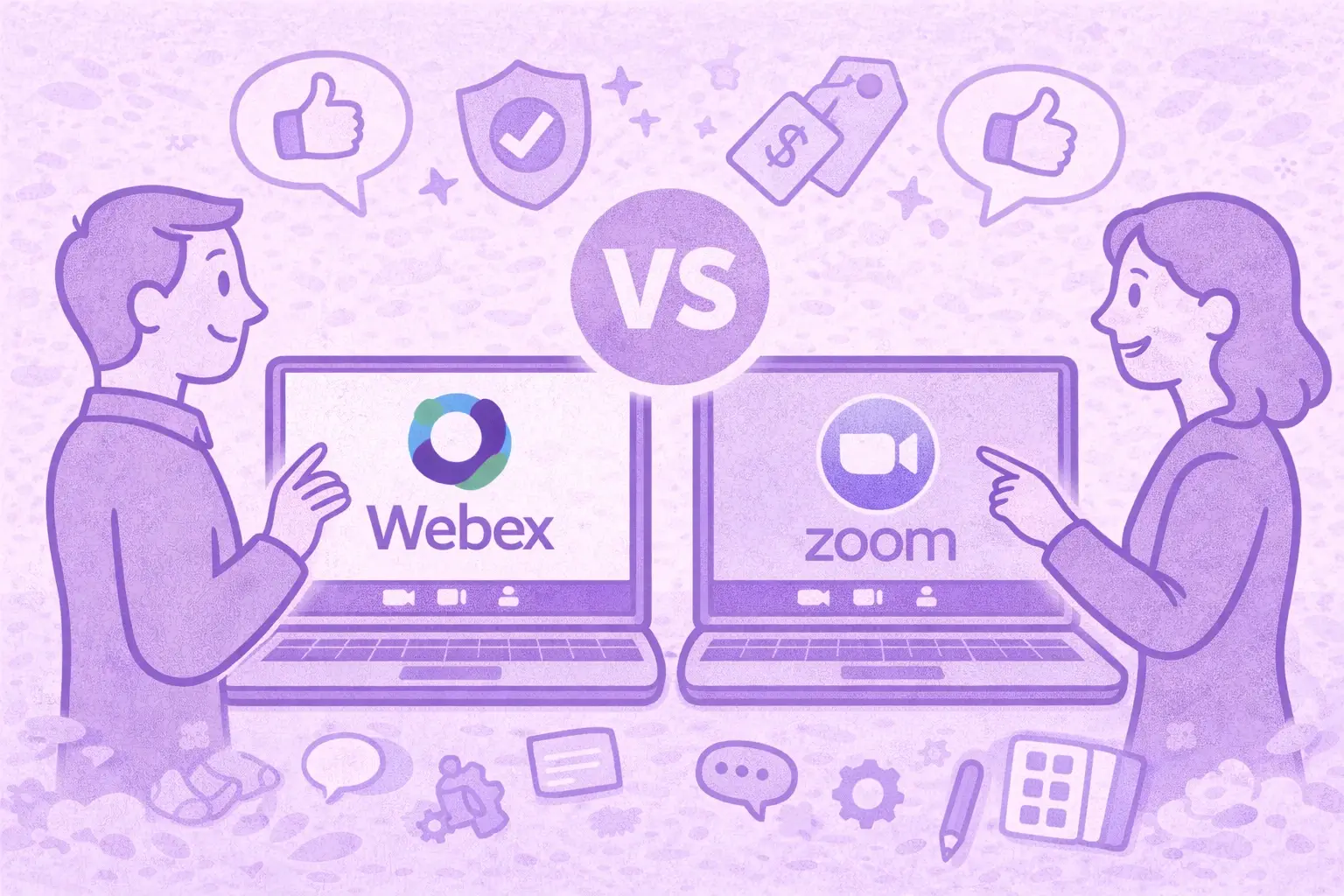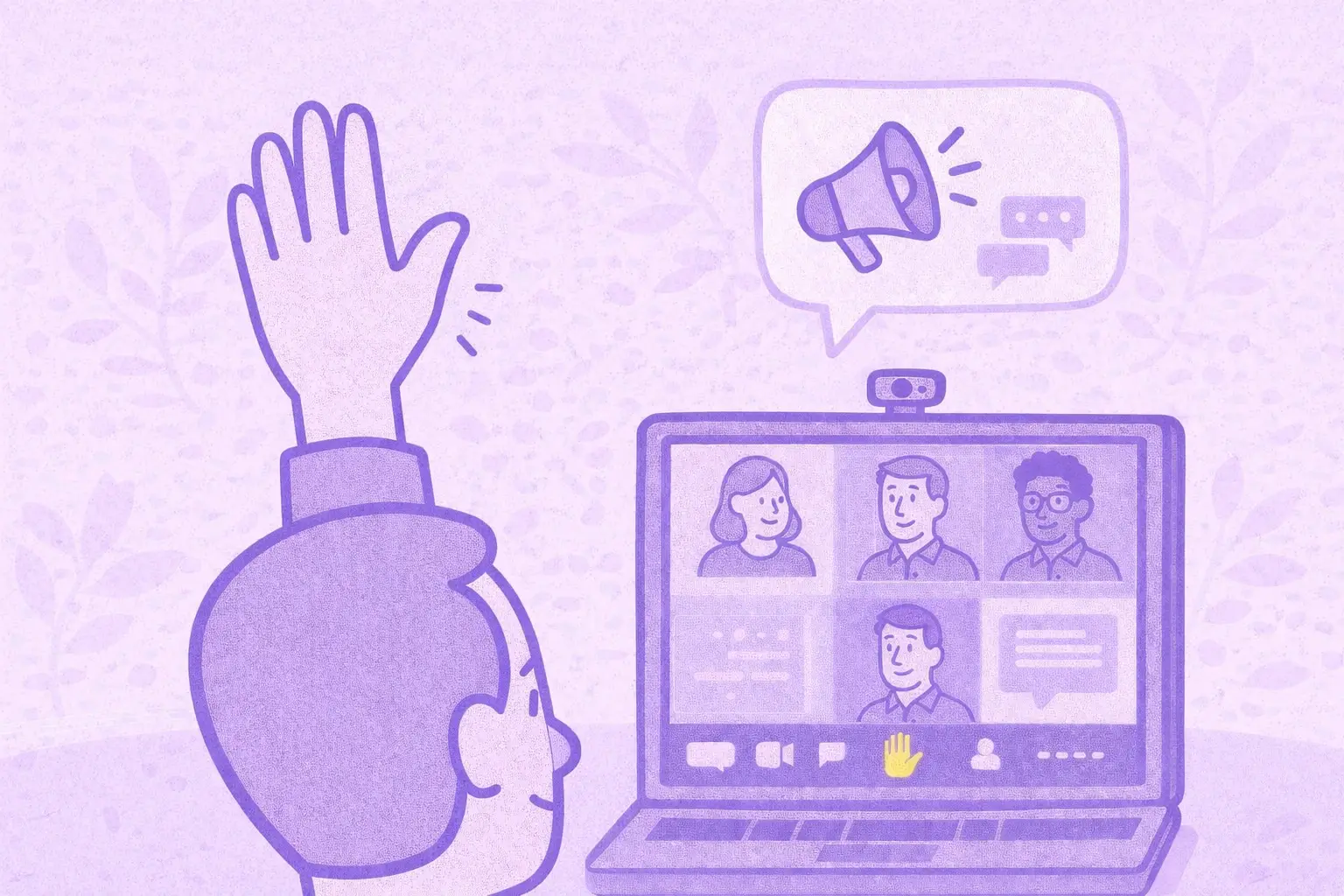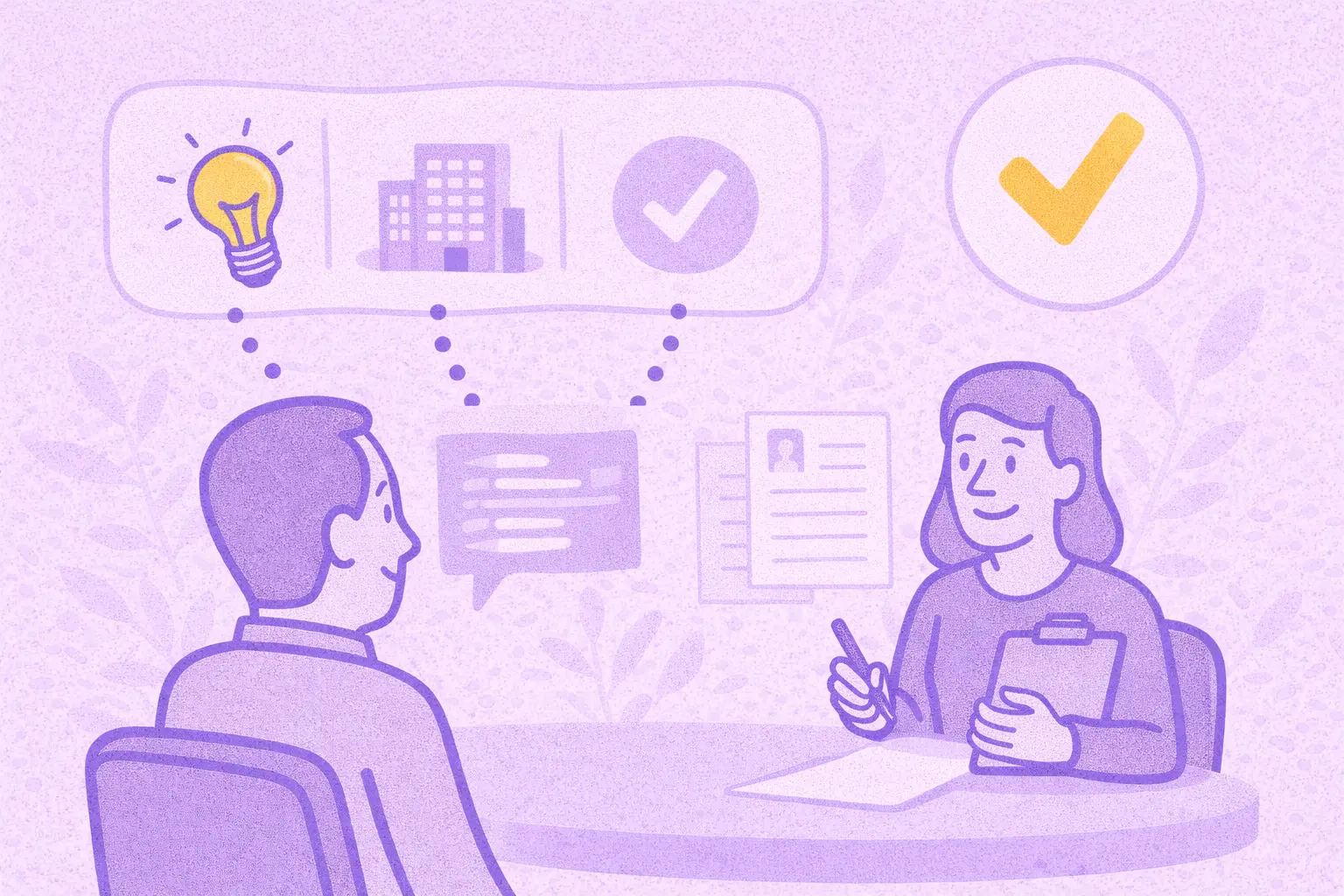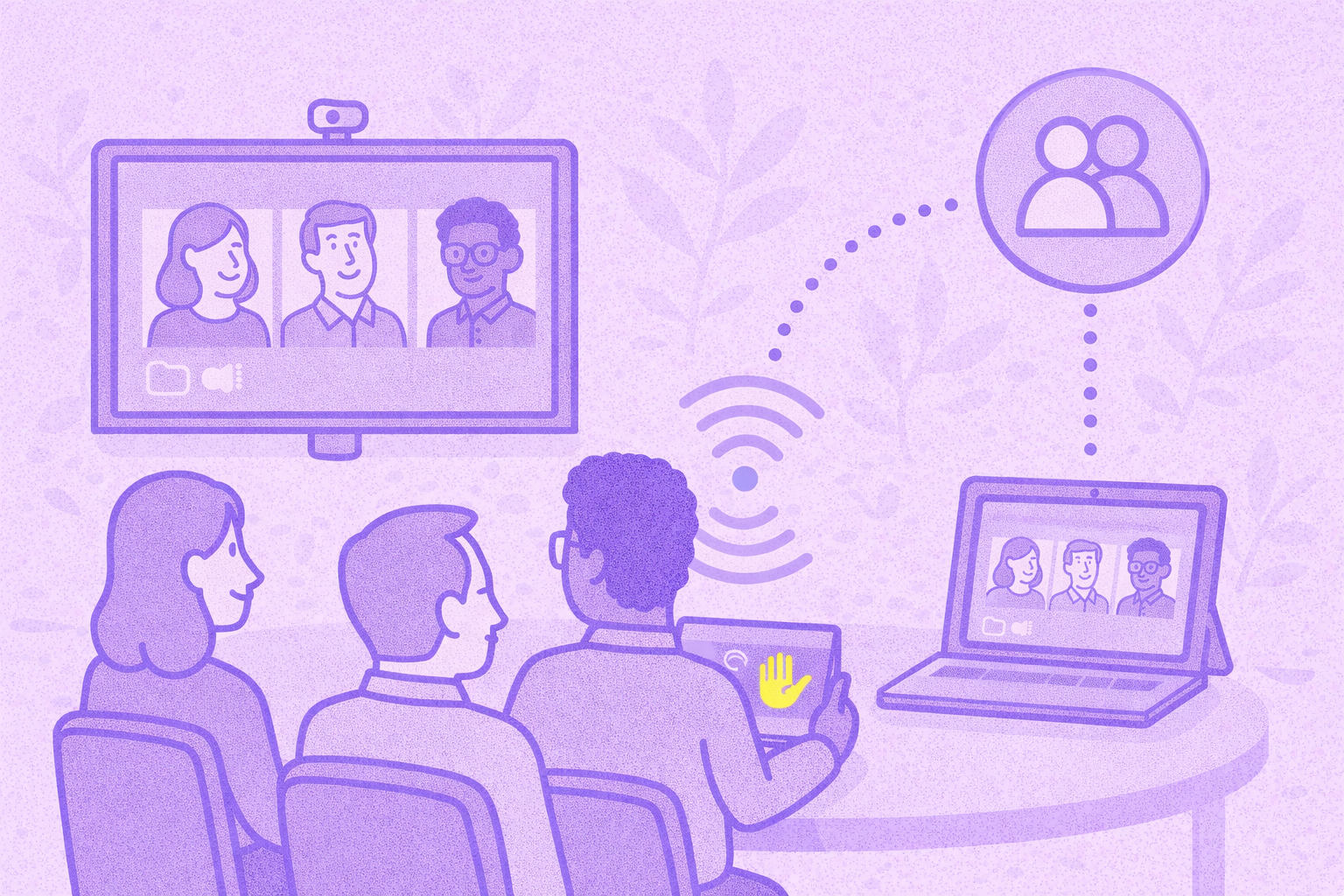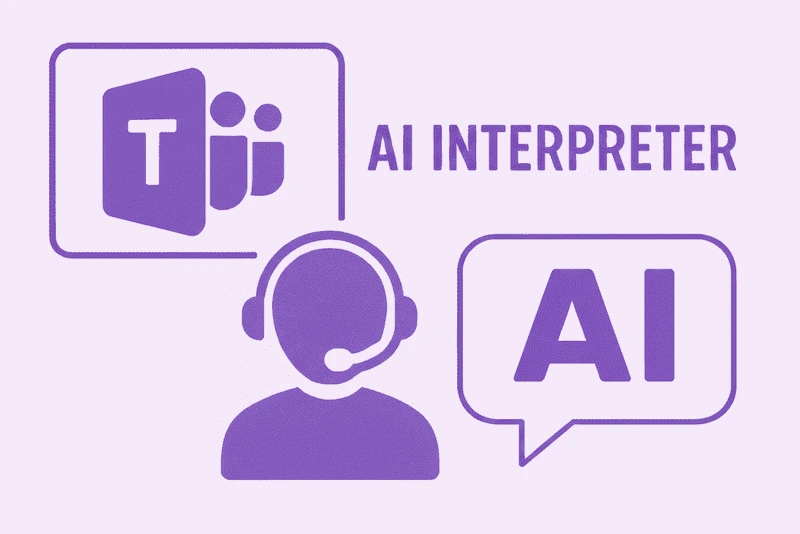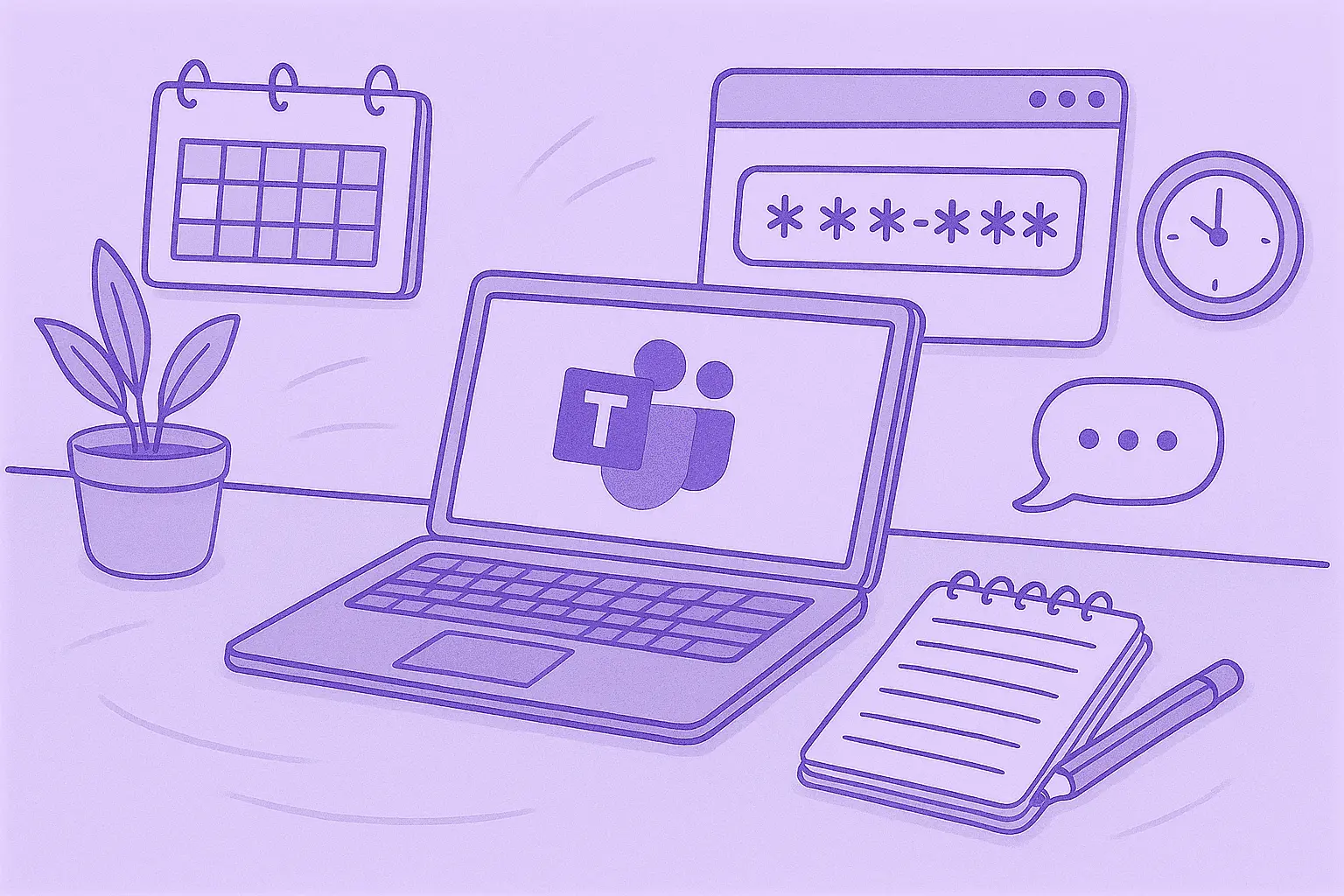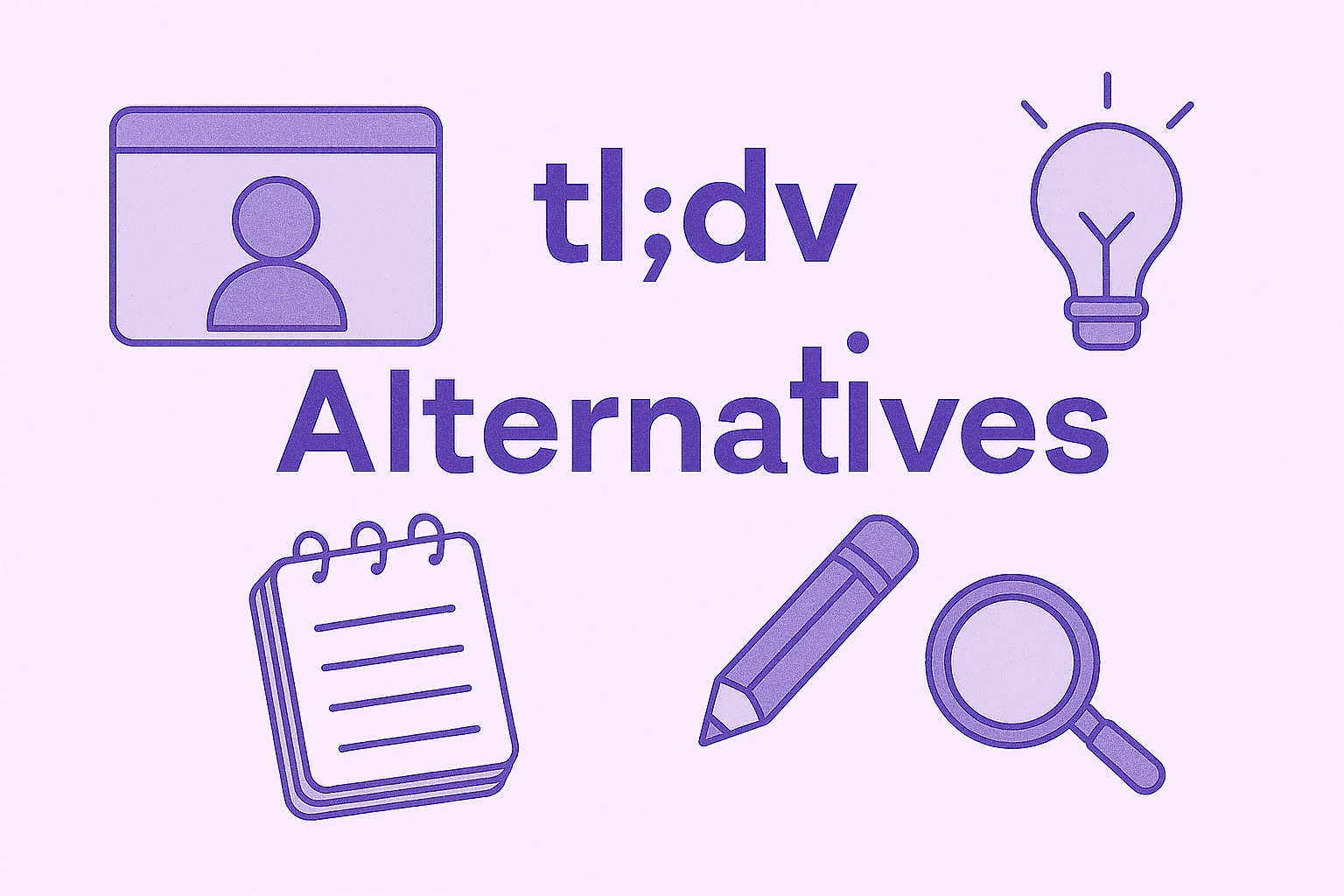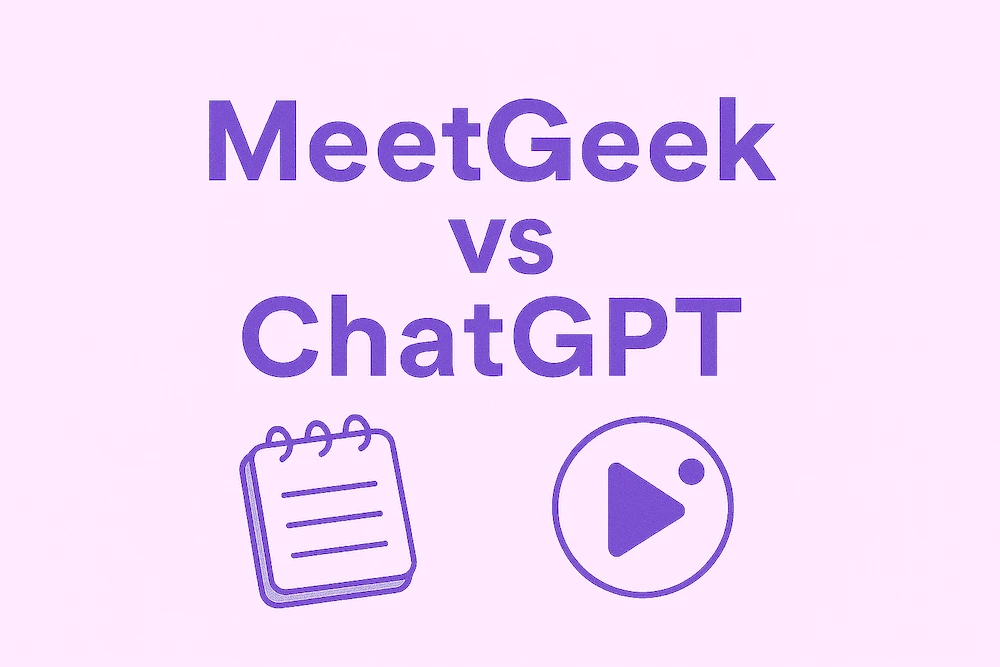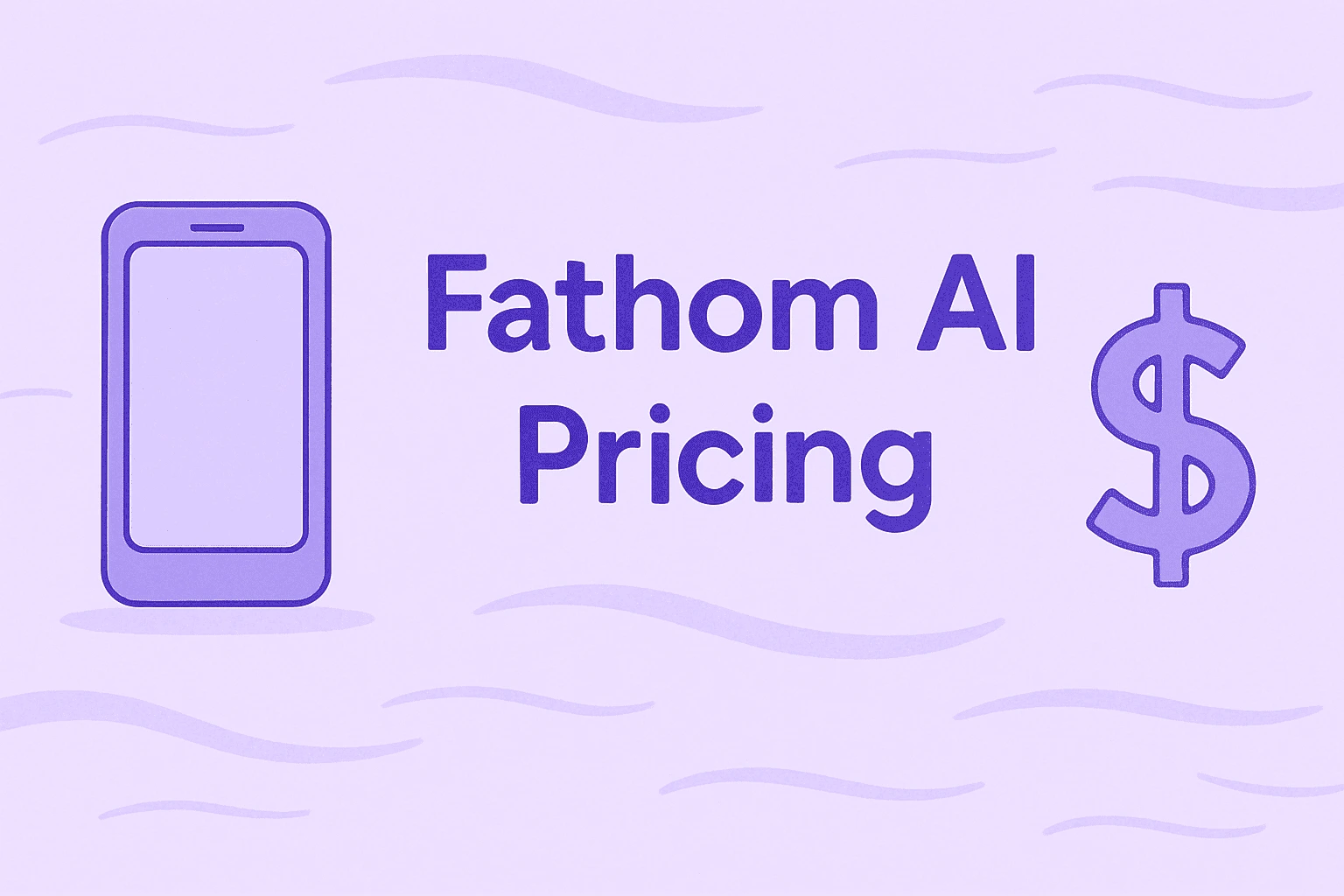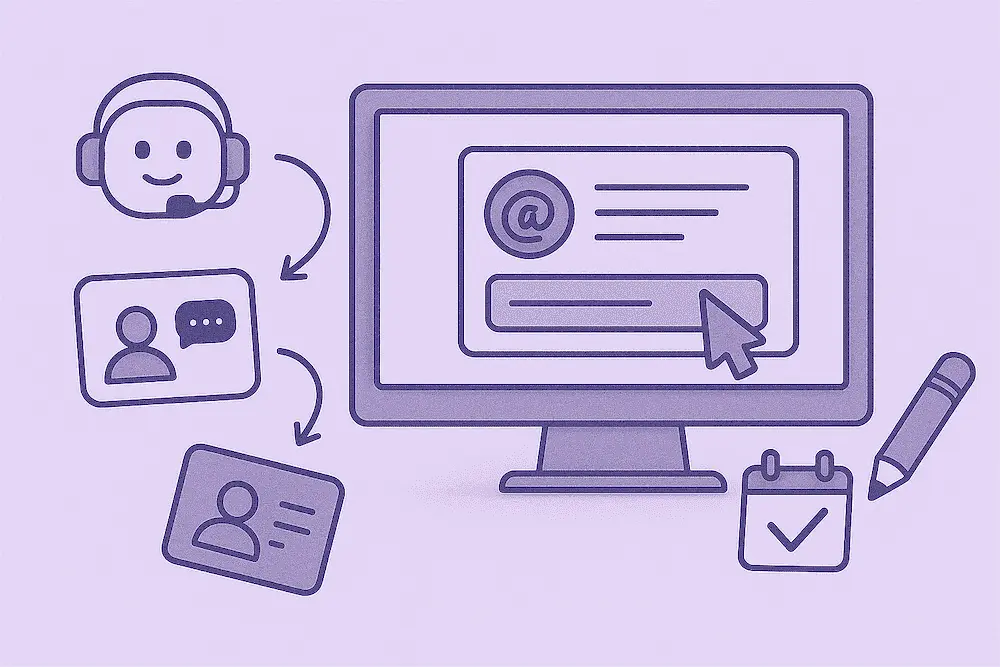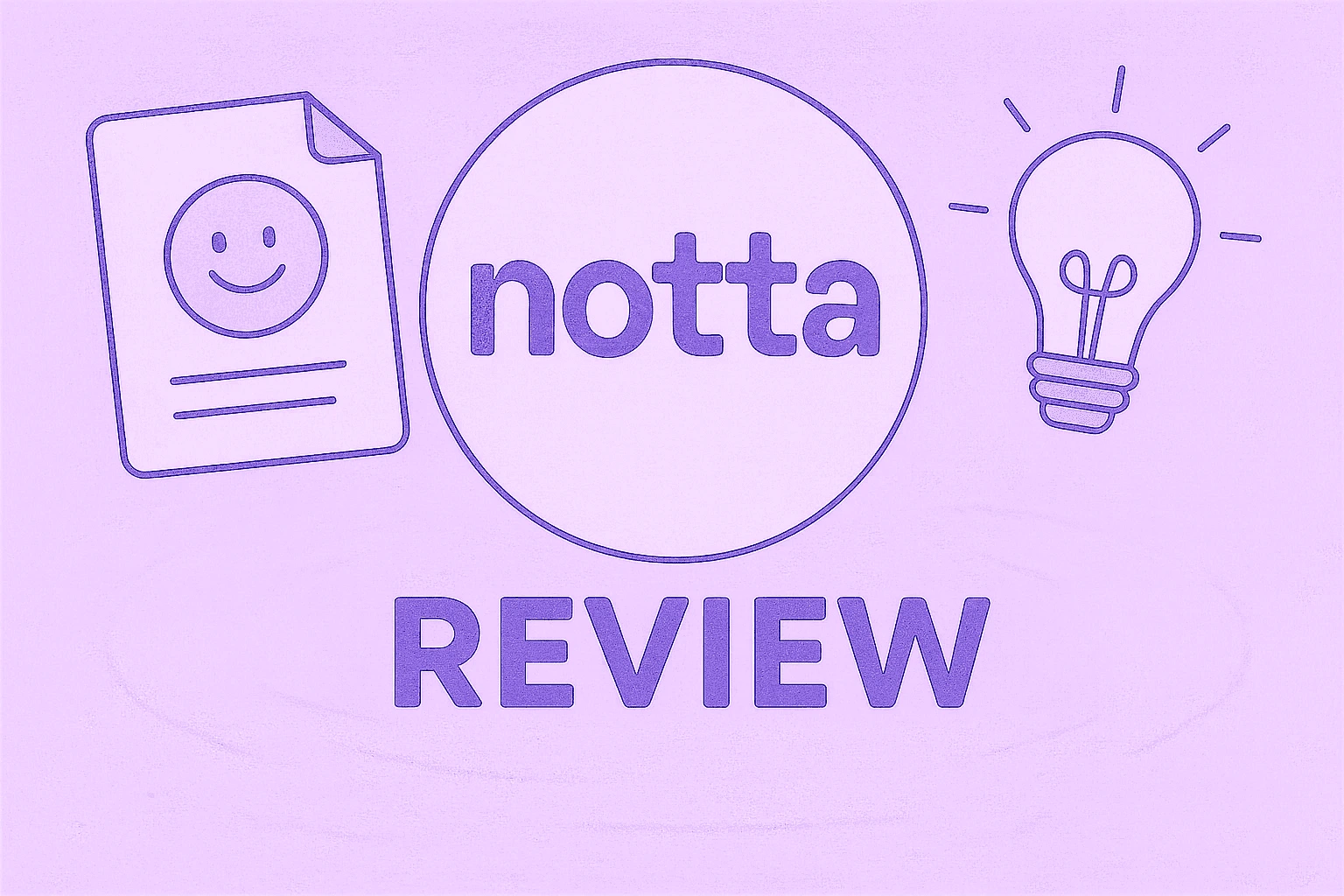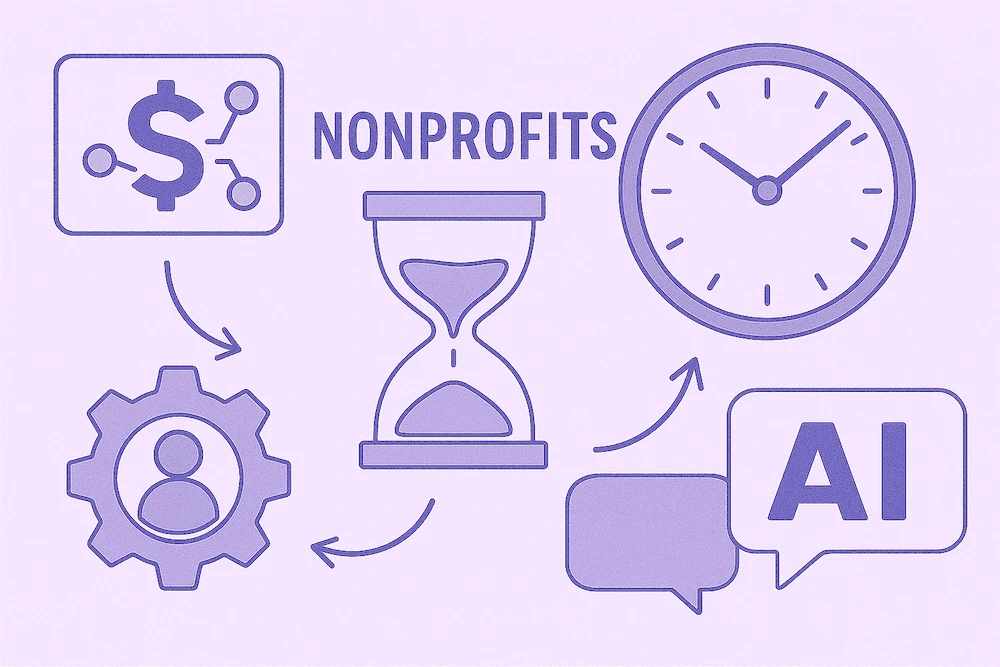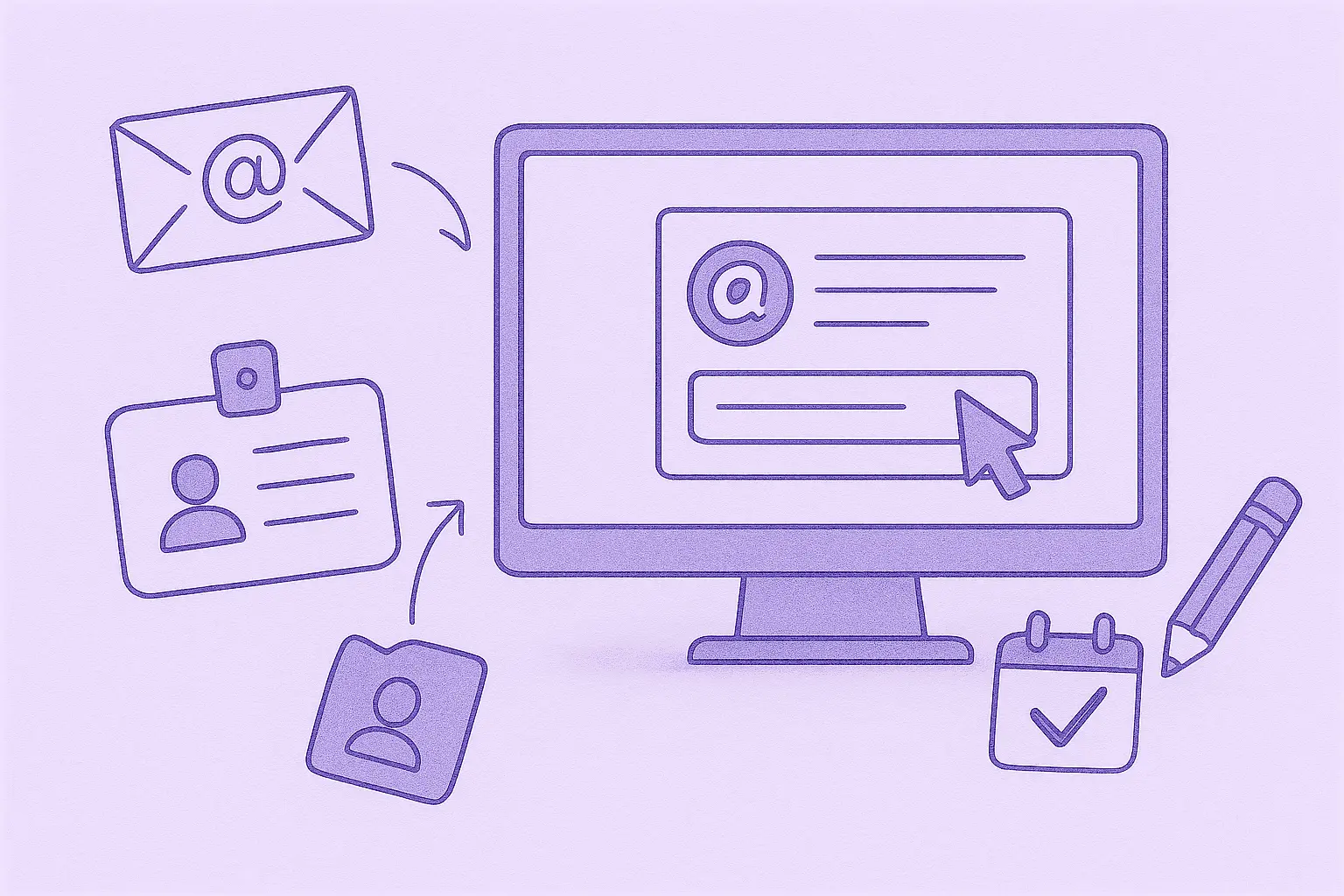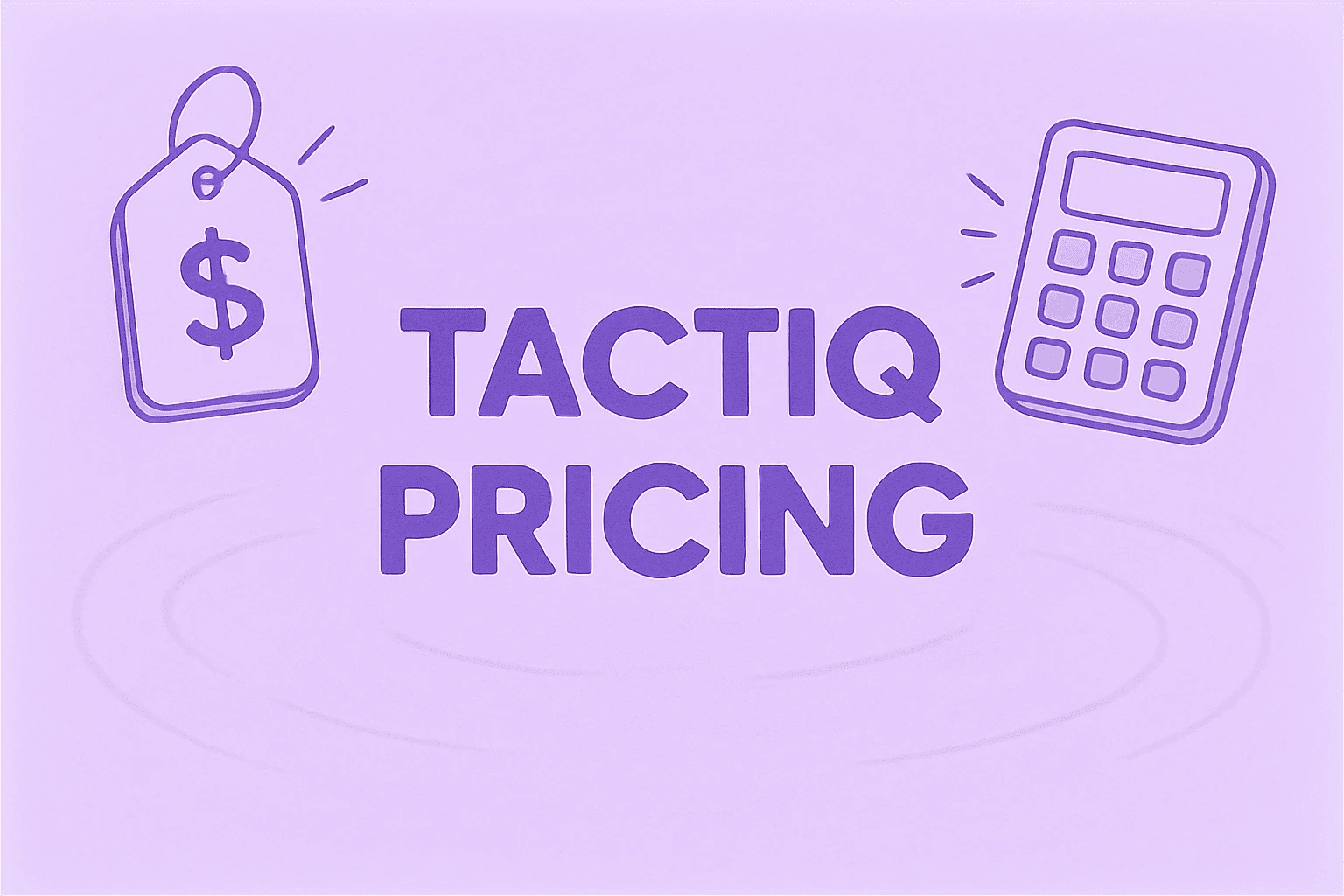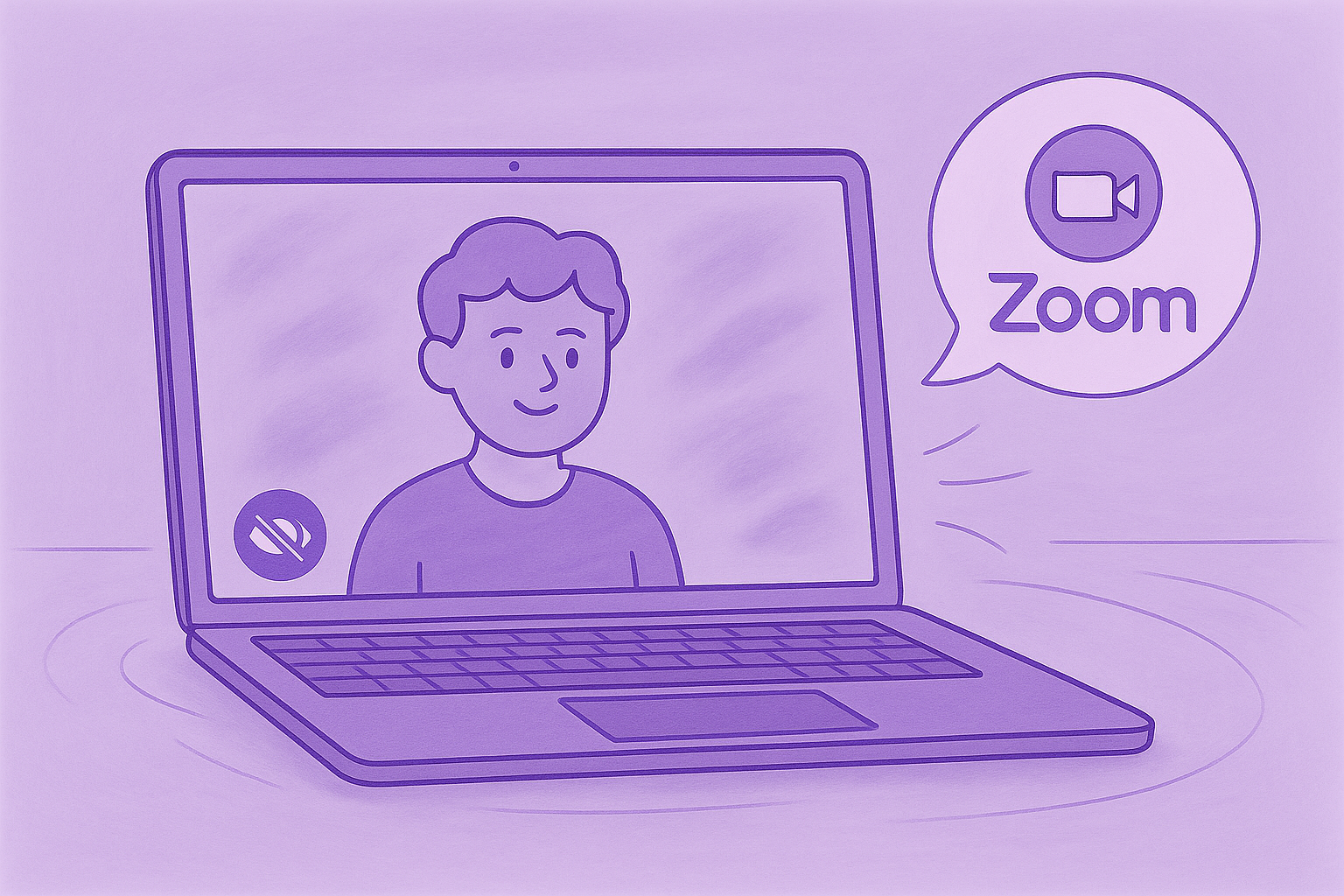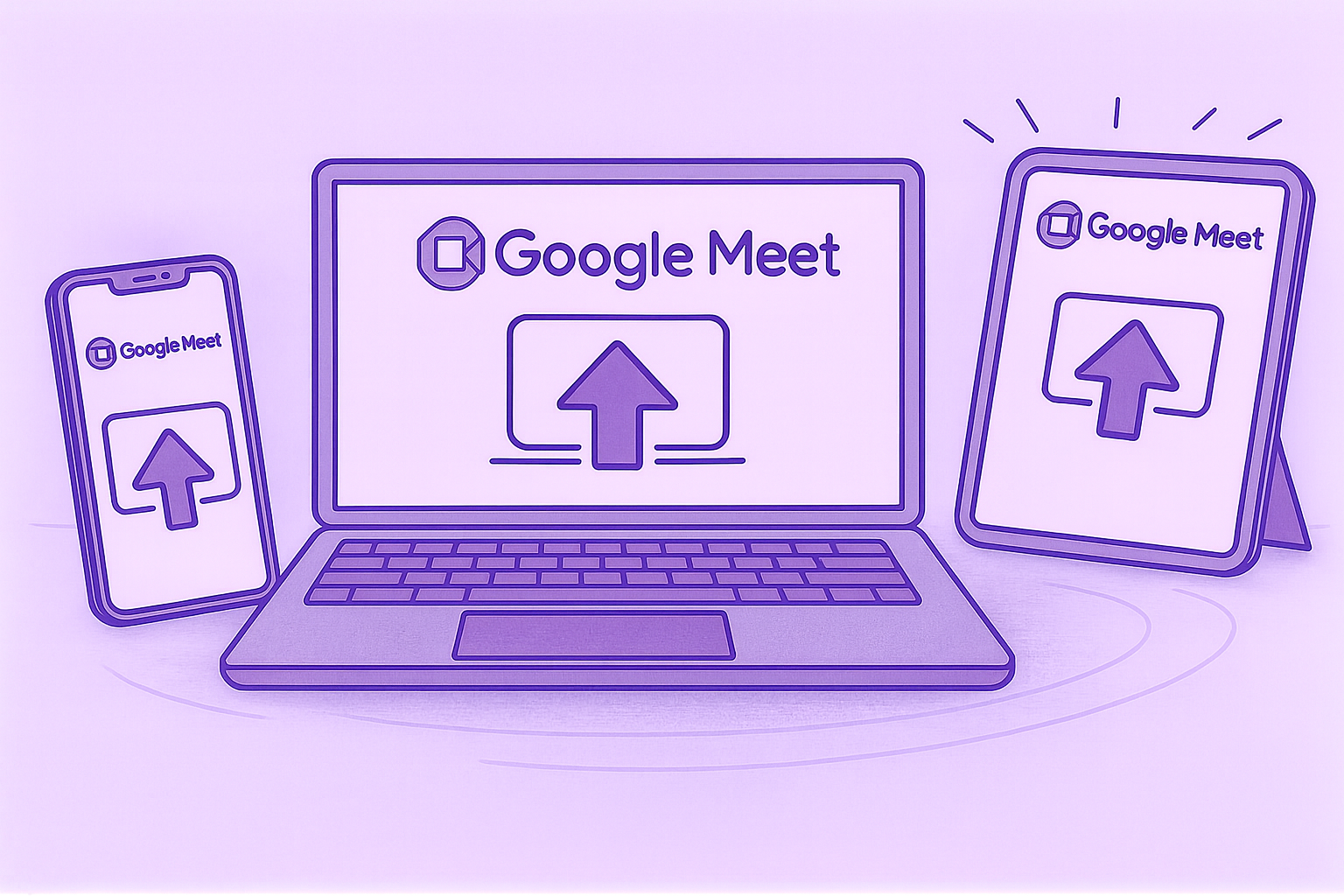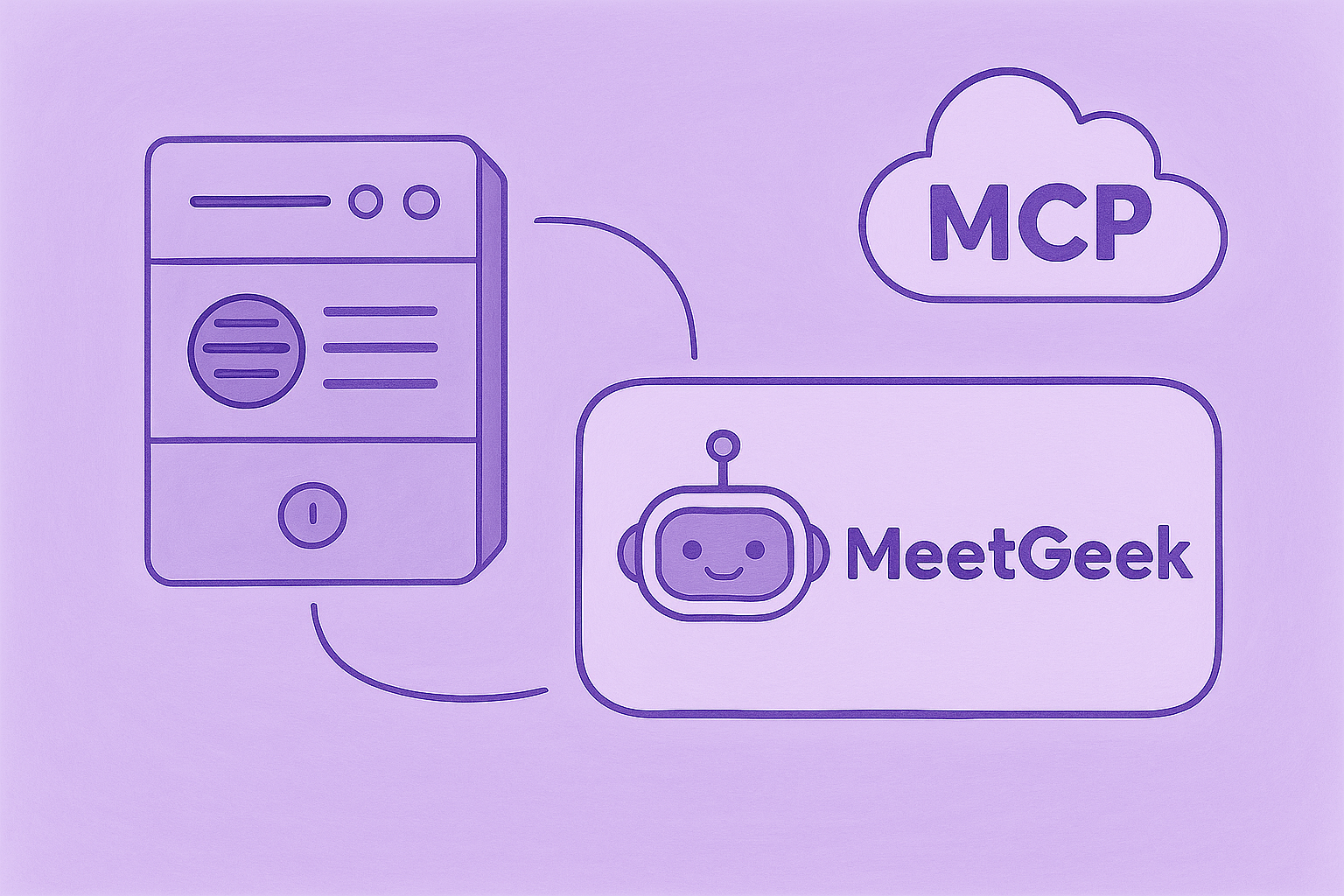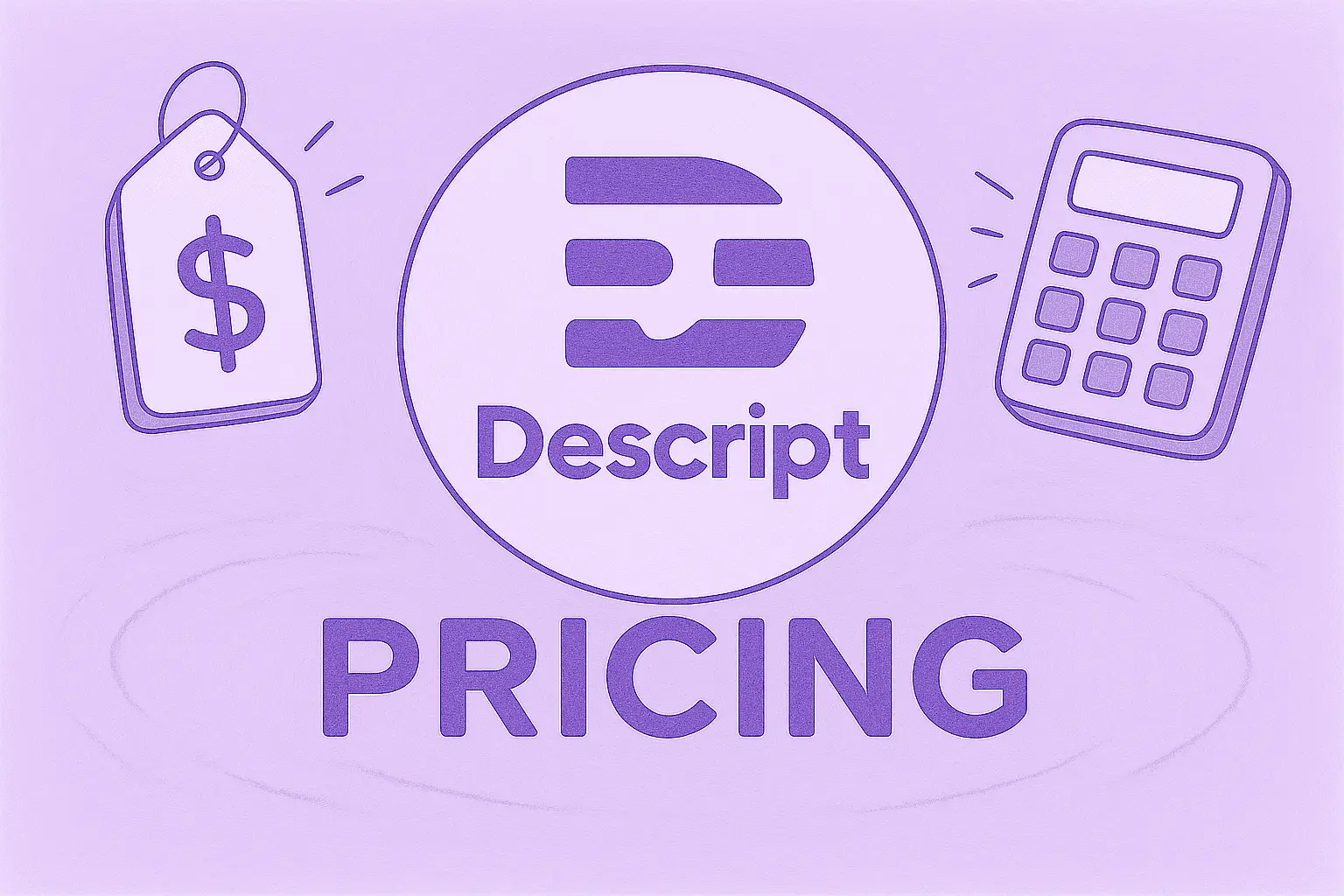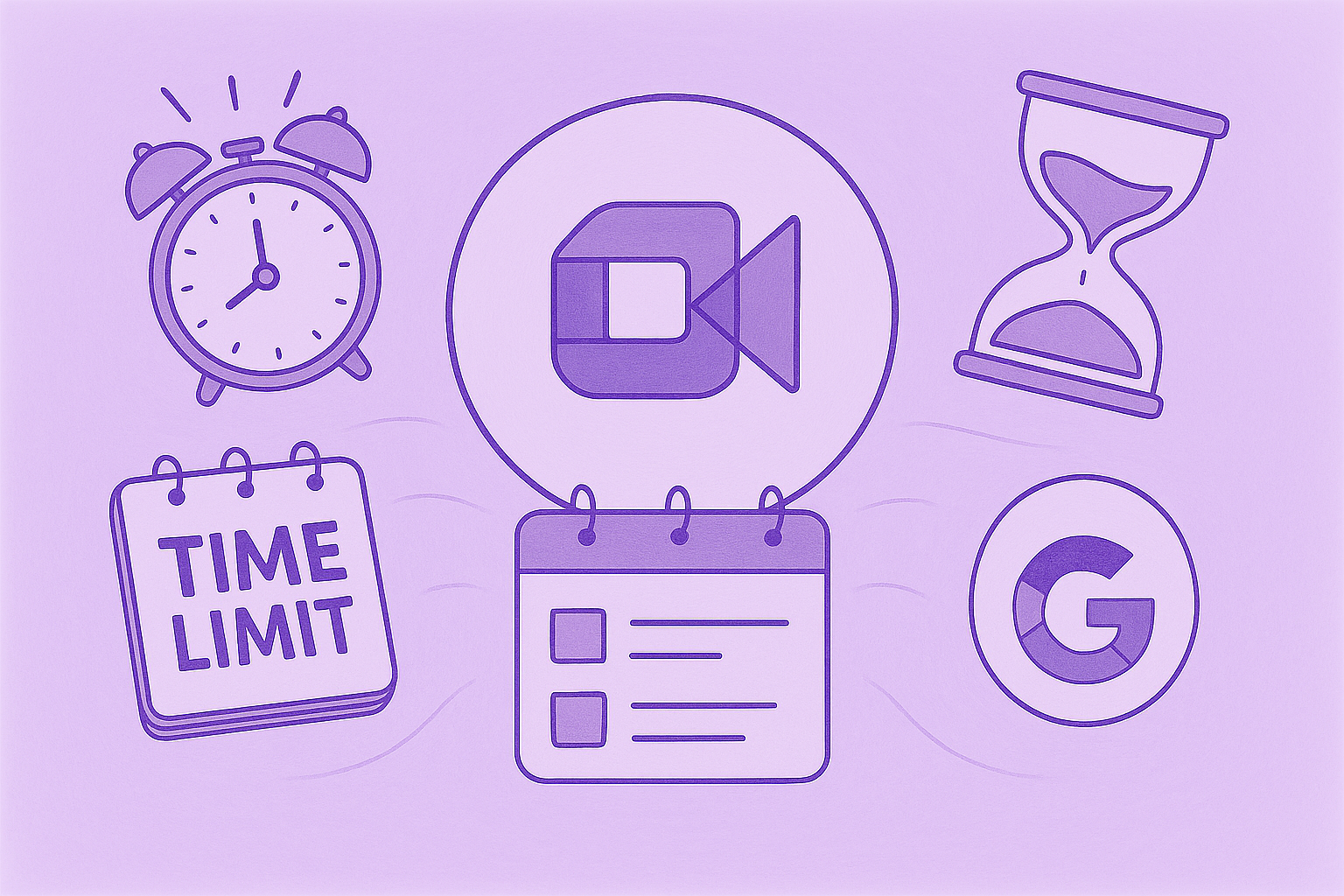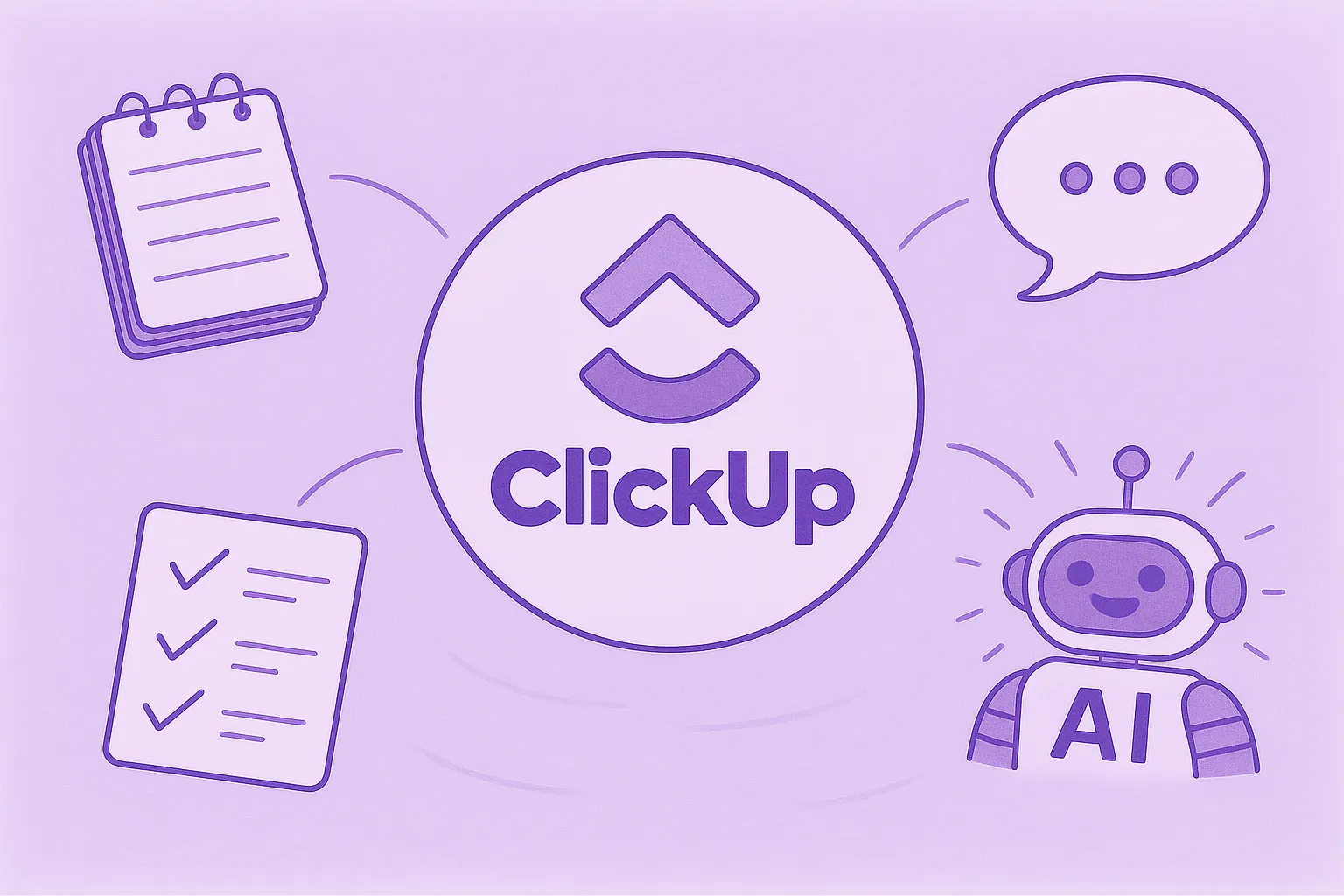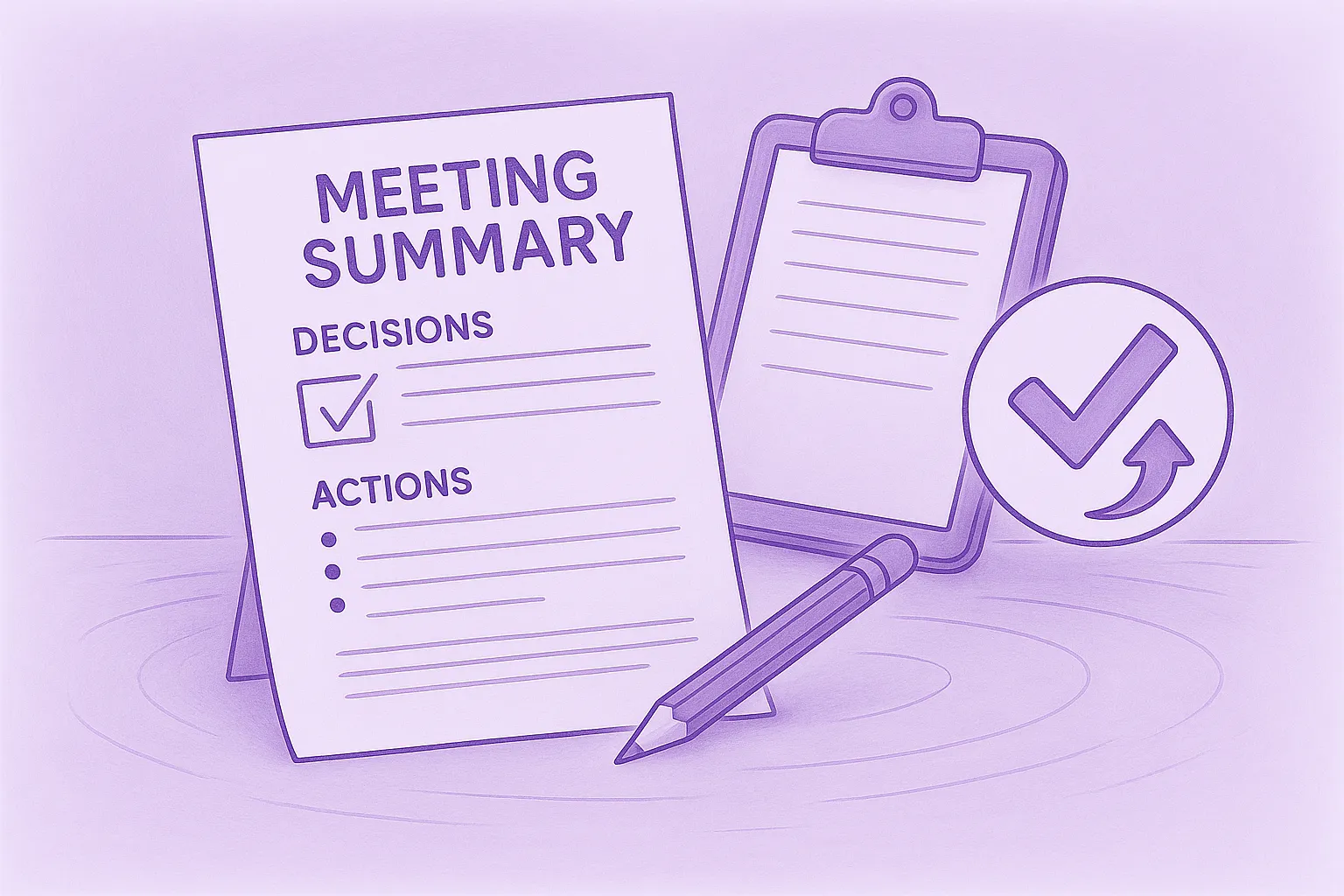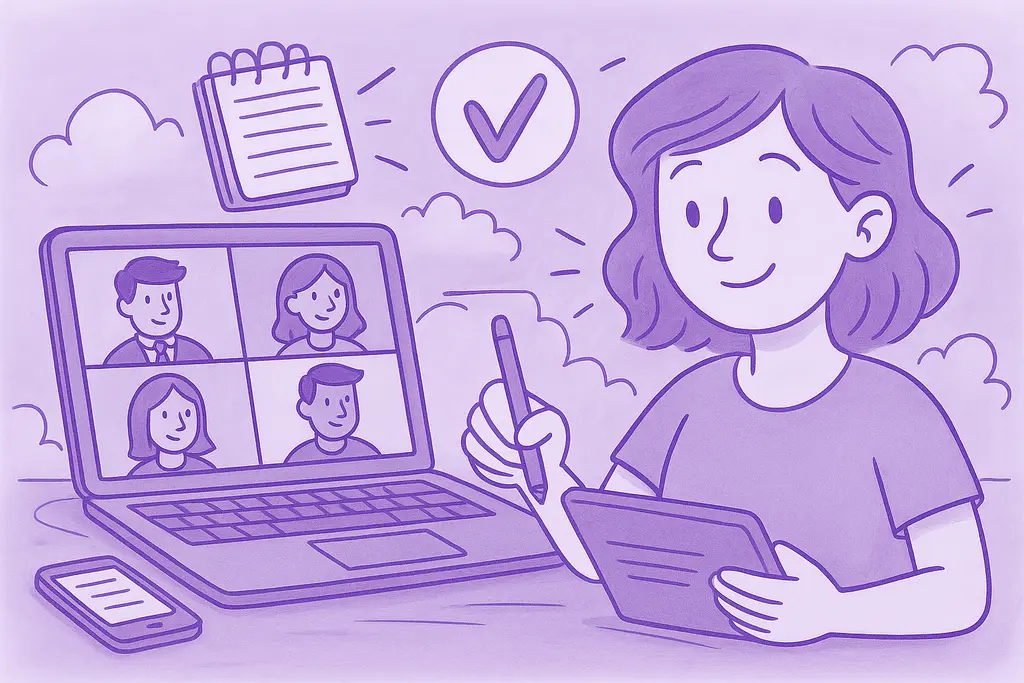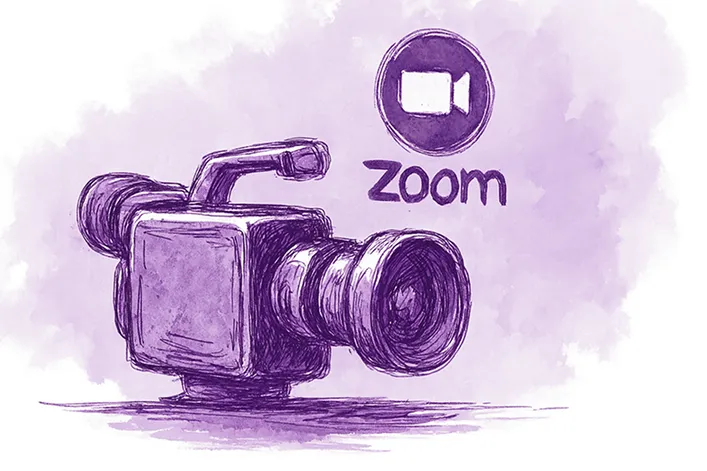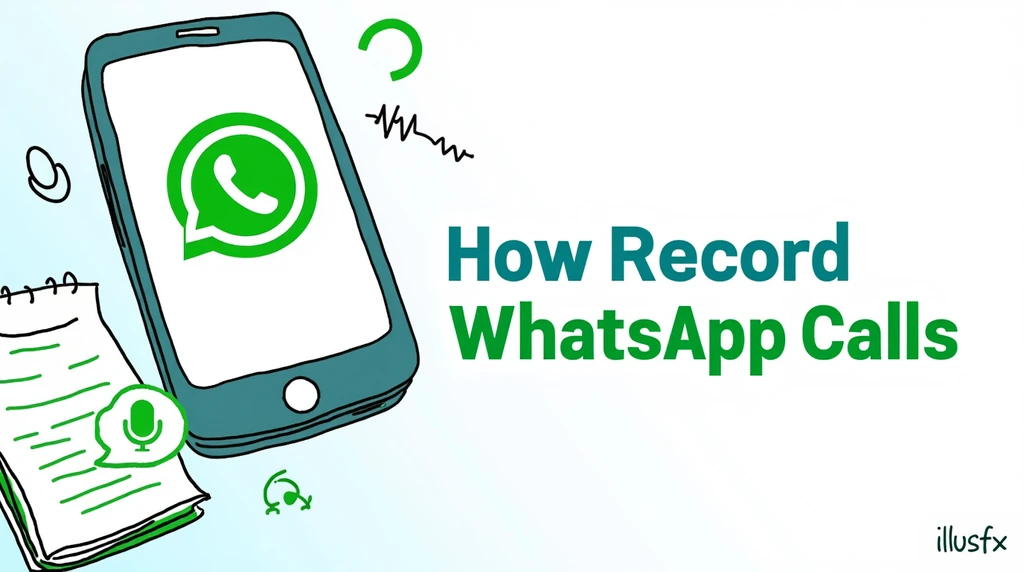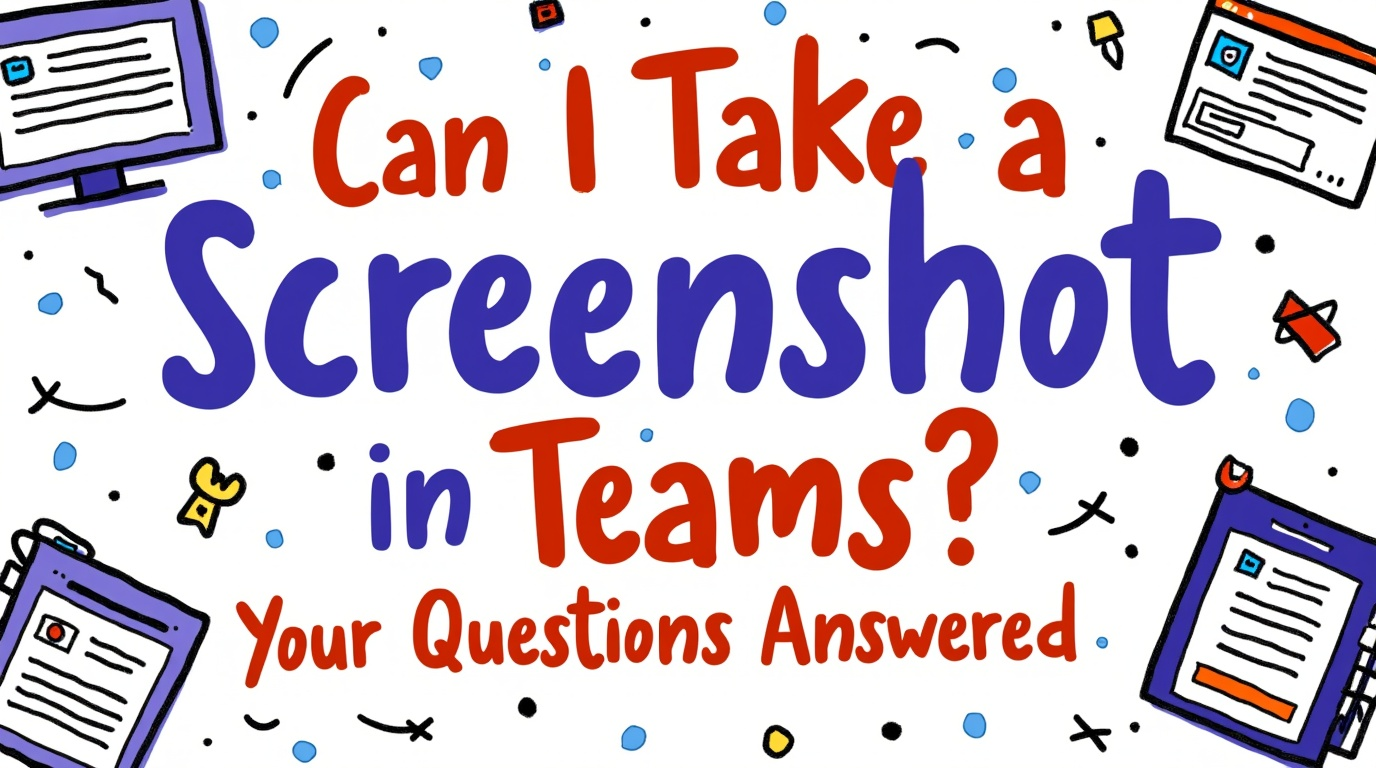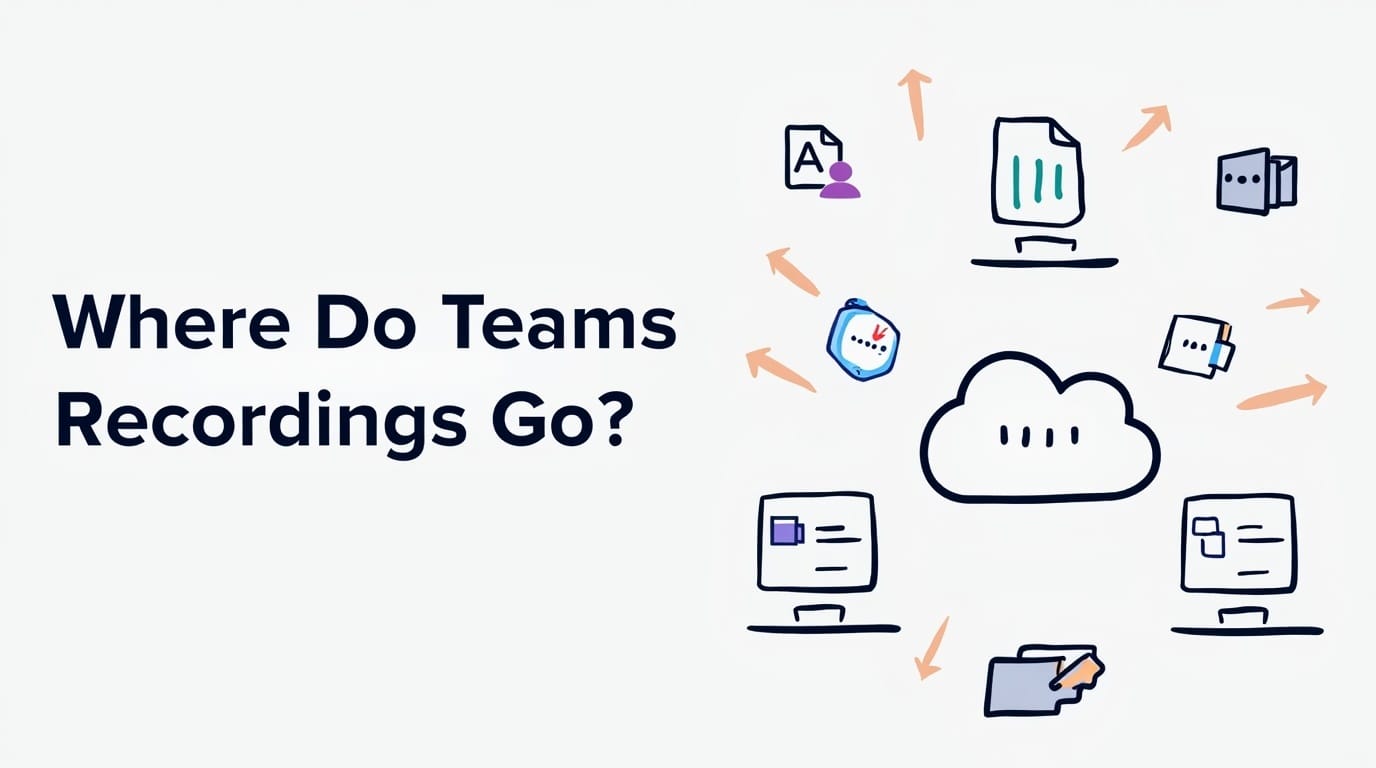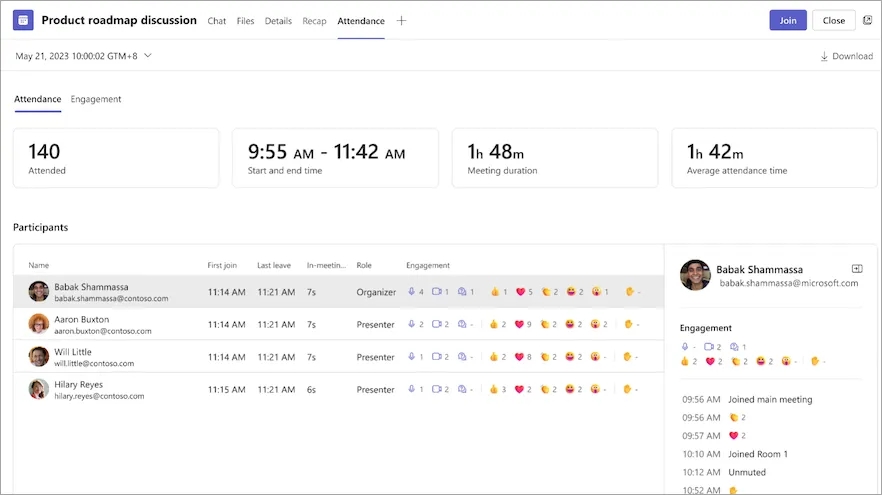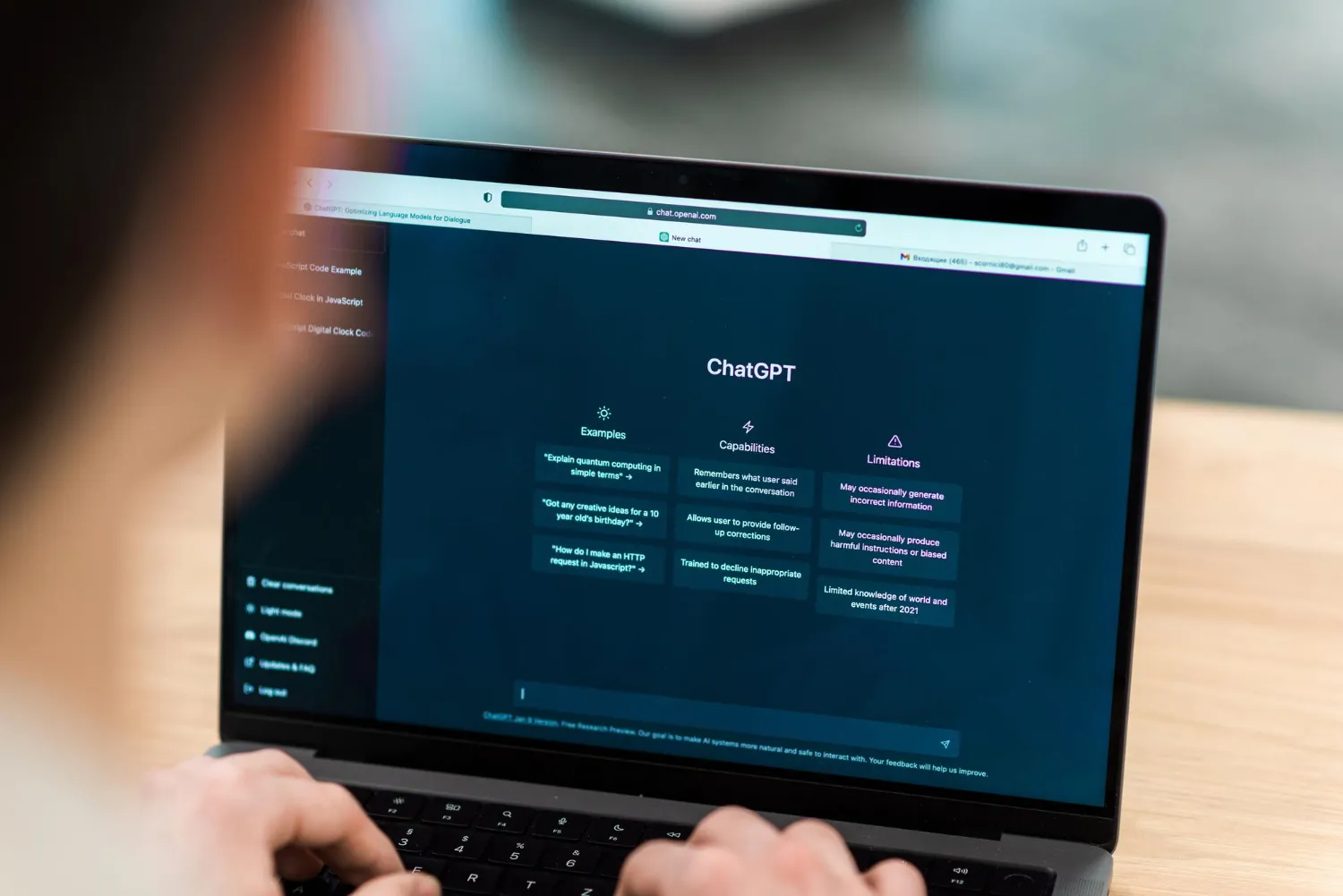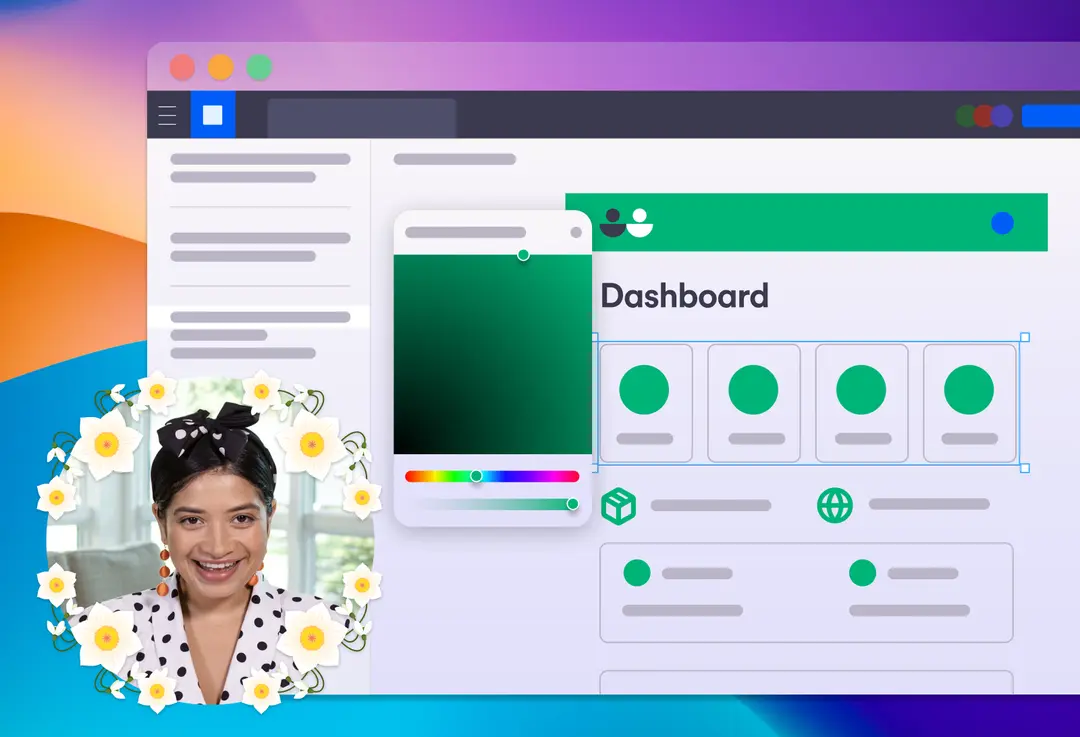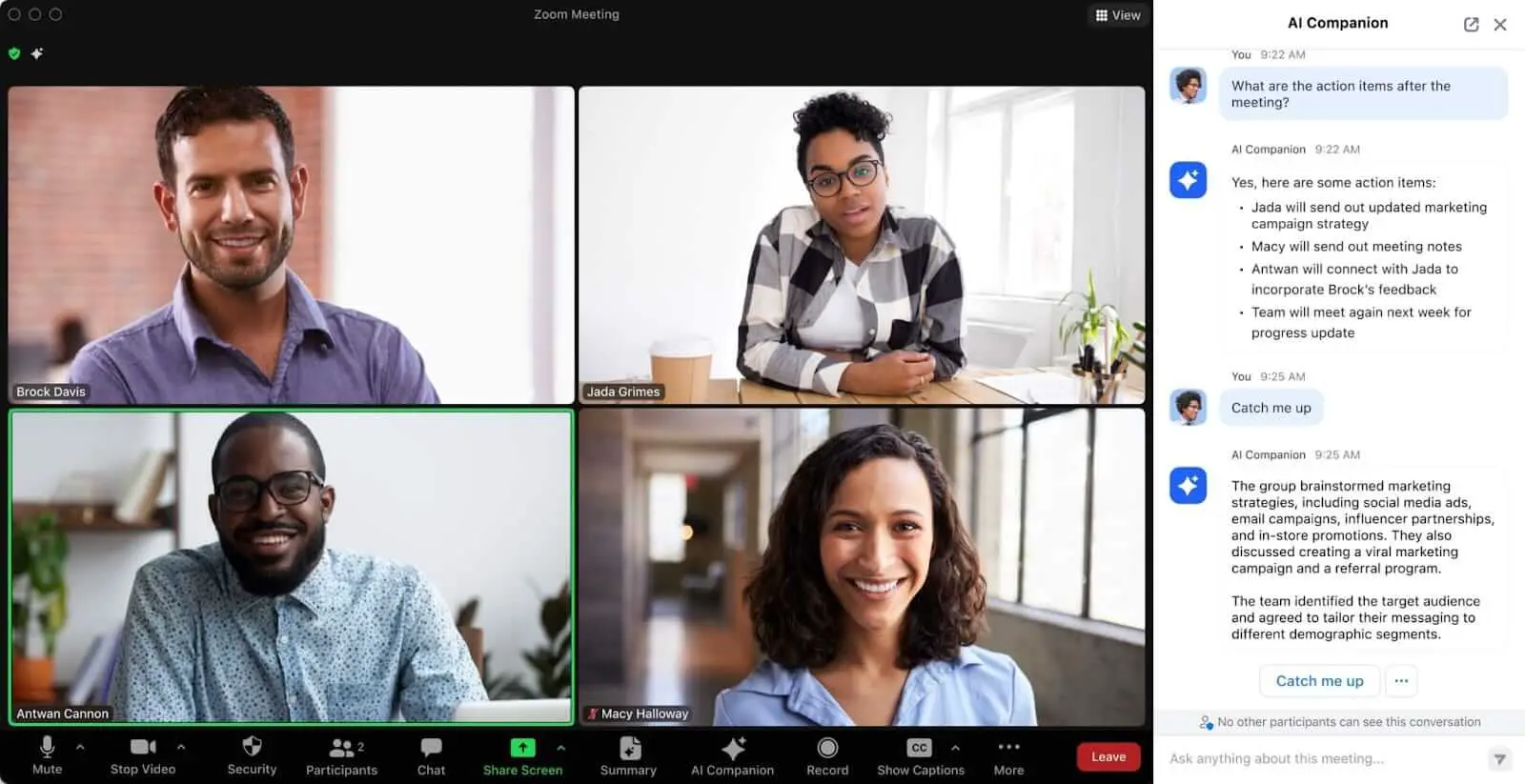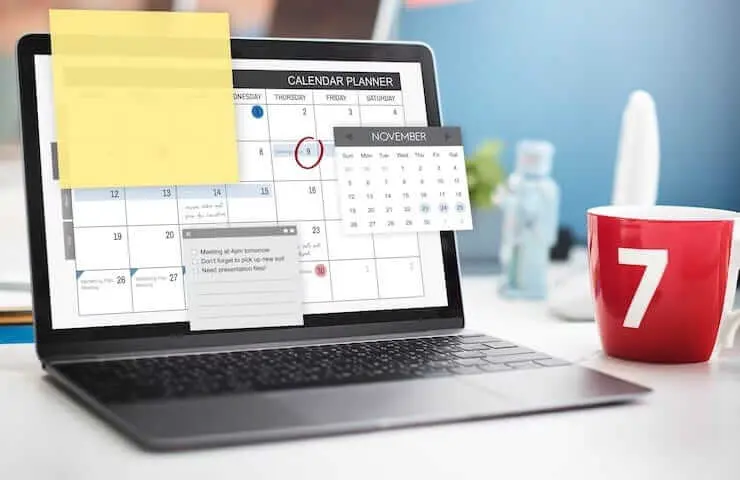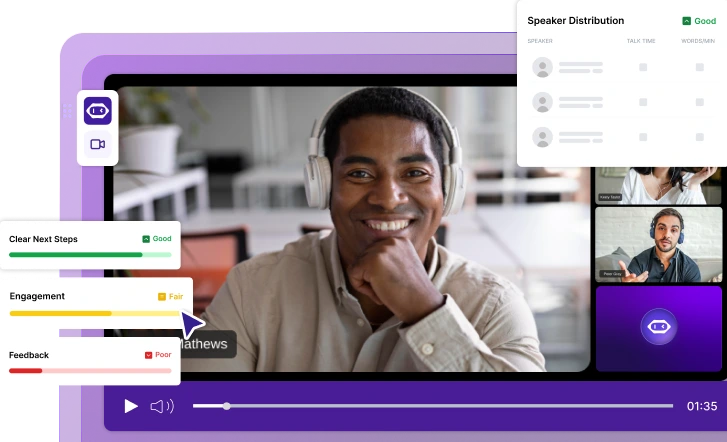Cómo programar una reunión de Zoom en Outlook en cualquier dispositivo
Aprenda a programar reuniones de Zoom en Outlook en todos los dispositivos con nuestra guía paso a paso. Optimice su proceso de planificación para lograr reuniones eficientes.
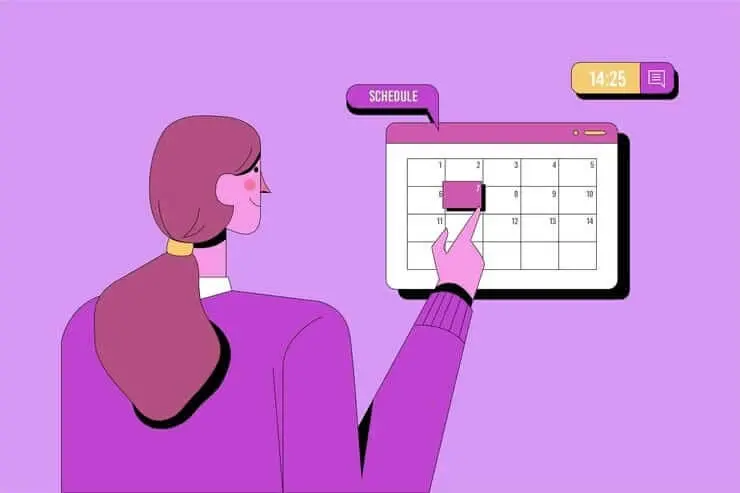
✅ Free meeting recording & transcription
💬 Automated sharing of insights to other tools.

Fuente de la imagen: freepik en Freepik
¿Alguna vez te has encontrado haciendo malabares con varias pestañas y aplicaciones al intentar configurar una reunión de Zoom en Outlook?
Al igual que usted, a muchos profesionales les resulta difícil programar reuniones de Zoom a través de Outlook. Después de todo, sincronizar las fechas del calendario en todos los dispositivos, garantizar que todos los participantes reciban los detalles precisos de las reuniones y navegar por diferentes sistemas operativos puede resultar confuso.
En las siguientes secciones, proporcionaremos una guía detallada paso a paso para ayudarlo a programar reuniones de Zoom en Outlook, ya sea en un PC o en un dispositivo móvil. ¡Empecemos!
Requisitos previos para programar reuniones de Zoom en Outlook
Antes de intentar programar reuniones de Zoom a través de Outlook, asegúrese de que todo esté configurado correctamente para que el proceso de programación sea más fluido y eficiente.
Estos son los requisitos previos para programar reuniones de Zoom en Outlook:
- Instalar el complemento o el complemento de Zoom: Para integrar Zoom con Outlook de forma eficaz, debe instalar cualquiera de las Plugin de Zoom para Microsoft Outlook en su escritorio o en Complemento Zoom para Outlook para uso web y móvil.
- Mantenga el software actualizado: Actualice periódicamente Outlook y Zoom a las versiones más recientes para evitar problemas de compatibilidad y acceder a las funciones y mejoras de seguridad más recientes.
- Configure su cuenta de Zoom: Es esencial tener una cuenta de Zoom activa. Si desea crear reuniones de Zoom en nombre de otra persona, asegúrese de hacerlo desde la misma cuenta de Zoom o de disponer de los permisos necesarios, que pueden requerir una cuenta de Zoom con licencia.
- Comprueba tu cuenta de Outlook: Asegúrese de que su cuenta de Outlook esté configurada correctamente y de que puede iniciar sesión y acceder a su calendario. Compruebe que las políticas de TI de su empresa permiten los complementos de terceros si utiliza el complemento Zoom para Outlook.
- Garantizar la compatibilidad de la red y los permisos: Compruebe que la configuración de red permite el acceso a los servidores de Zoom. Es posible que necesite permisos administrativos para instalar software adicional en algunos entornos de TI.
- Conozca las funciones del calendario de Outlook: Estar bien familiarizado con las funciones de calendario de Outlook, como la configuración de la duración de las reuniones, las reuniones periódicas y las opciones de privacidad, es crucial para una programación eficiente.
Cómo programar una reunión de Zoom en Outlook
A. Cómo programar una reunión de Zoom en el cliente de escritorio de Outlook
Programar una reunión de Zoom a través del cliente de escritorio de Outlook es una forma cómoda de administrar el calendario y configurar las reuniones en un flujo de trabajo integrado.
A continuación, se explica cómo programar una reunión de Zoom en el cliente de escritorio de Outlook:
- Garantice la Plugin de Zoom para Microsoft Outlook se instala para añadir eficazmente sesiones de Zoom a las invitaciones del calendario de Outlook. Descargue la versión correspondiente (32 o 64 bits) desde Centro de descargas de Zoom.
- Inicie Outlook y cambie a la vista de calendario para ver su agenda y elegir la mejor hora para la reunión.
- Haga clic en»Nuevo evento» en la pestaña Inicio para acceder a la ventana en la que puede introducir los detalles de la reunión.
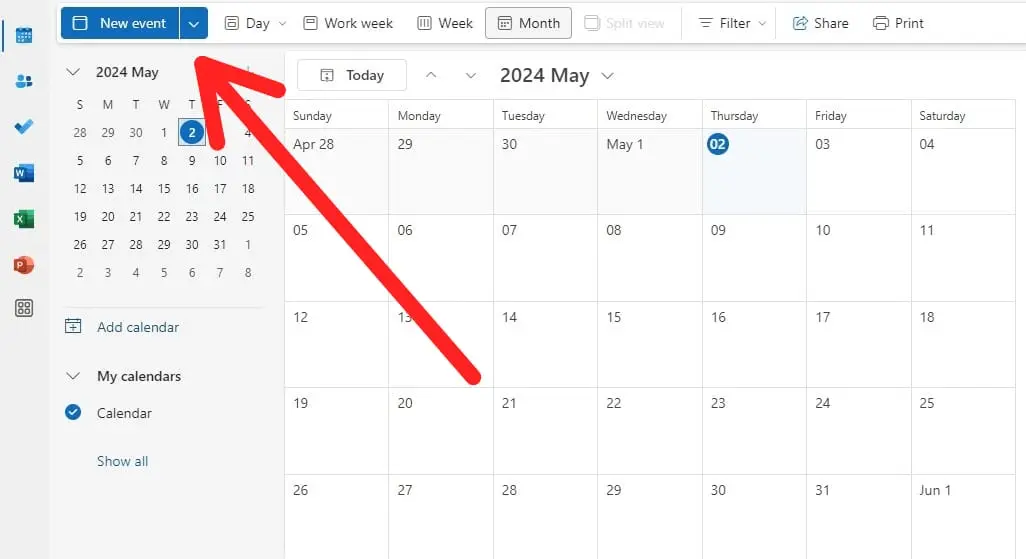
- En la ventana de la reunión, complete los siguientes campos:
- Asunto: Escribe un tema breve y claro para tu evento del calendario.
- Ubicación: Escriba «Zoom Meeting» como marcador de posición.
- Hora de inicio y finalización: Elija los horarios, asegurándose de que la duración se ajuste a la reunión planificada.
- Haga clic en el Agregar una reunión de Zoom icono en la barra de herramientas de la reunión. Esto le pedirá que inicie sesión en su cuenta de Zoom (si aún lo necesita) y rellene automáticamente la invitación a la reunión con el enlace y la información de acceso telefónico.
- Haga clic en el»Ajustes» icono en la sección Zoom para modificar los ajustes, por ejemplo, si los participantes se unirán con vídeo y audio en, y ajustes más avanzados, como habilitar salas de espera o agregar una contraseña de reunión.
- En el»Para» campo, añada las direcciones de correo electrónico de los participantes de la reunión. Considere la posibilidad de utilizar el Asistente de programación para ver los horarios disponibles de otros usuarios si sus calendarios están visibles para ti.
- Una vez que haya configurado todos los ajustes y agregado a sus participantes, presione»Ahorra.» Todos recibirán un correo electrónico con los detalles de la reunión de Zoom y un enlace para unirse a la llamada.
CONSEJOS PROFESIONALES:
- Si se trata de un evento que se repite, utilice» de OutlookRecurrencia» función para configurar la frecuencia de sus reuniones.
- Asegúrese de establecer la hora de la reunión antes de añadir Zoom al evento del calendario. De lo contrario, la reunión se programará para la fecha y hora predeterminadas utilizadas para el nuevo evento, lo que puede provocar que la reunión caduque antes de la fecha prevista.
- Para asistentes de diferentes zonas horarias, ajuste la hora de la reunión en Outlook para reflejar la hora correcta para cada participante.
- Activar Función de recordatorio de Outlook para enviar notificaciones automáticas antes de que comience la reunión.
B. Cómo programar una reunión de Zoom en la aplicación web de Outlook
Si viaja con frecuencia, el calendario web de Outlook puede ser la forma más fácil de programar y administrar sus próximas reuniones de Zoom.
A continuación, se explica cómo programar una reunión de Zoom en la web de Outlook:
- Asegúrese de tener instalado el complemento Zoom para Outlook. Si no lo tiene, vaya a Microsoft AppSource, busque el complemento Zoom para Outlook y haga clic en «Conseguirlo ahora» para instalarlo.

- En su cuenta de Outlook, seleccione el icono del calendario para acceder a su agenda y encontrar la mejor hora para la reunión.
- Haga clic en el botón»Nuevo evento» opción en la parte superior izquierda de su calendario para abrir el formulario donde puede introducir los detalles de la reunión.
- En el nuevo formulario de evento, rellena lo siguiente:
- Título: Proporcione un título claro para la reunión.
- Horas de inicio y finalización: Elija las horas de inicio y finalización de su reunión de Zoom. Ajústelo a diferentes zonas horarias si los participantes se encuentran en diferentes lugares.
- Ubicación: Puede introducir «Zoom Meeting» aquí como marcador de posición.
- Si tienes instalado el complemento Zoom, verás la opción»Agregar una reunión de Zoom» en la barra de herramientas del evento. Selecciónelo y, si se le solicita, inicie sesión en su cuenta de Zoom. Esto completará automáticamente su evento con un enlace de Zoom y opciones de acceso telefónico.
- Tras añadir los detalles de Zoom, personalice la configuración de la reunión directamente en la ventana del evento. Aquí puedes activar o desactivar vídeo, añada un contraseña de la reunión, y configurar funciones como sala de espera.
- Introduzca las direcciones de correo electrónico de todos los participantes en el»Invita a los asistentes» sección. Si está disponible, usa el asistente de programación para seleccionar una hora que se adapte a los horarios de todos los participantes.
- Una vez que todo esté configurado, haga clic en»Enviar.» Esto enviará invitaciones a todos los participantes, con todos los detalles que necesitan para unirse a la reunión de Zoom.
CONSEJOS PROFESIONALES:
- Si trabajas con compañeros de diferentes zonas horarias, configura tu calendario de Outlook para que muestre dos zonas horarias para evitar confusiones.
- Aproveche el asistente de programación de Outlook para identificar los horarios disponibles para los participantes de la reunión y reducir los conflictos de programación.
- Ajusta ajustes como habilitar una sala de espera o establecer una contraseña de reunión directamente en Outlook al programar tu reunión de Zoom.
C. Cómo programar una reunión de Zoom en la aplicación Outlook Phone (iOS/Android)
La programación de reuniones de Zoom a través de la aplicación Outlook en su dispositivo iOS o Android es una forma eficaz de gestionar las reuniones y unirse a ellas desde cualquier lugar.
A continuación, se explica cómo programar una reunión de Zoom en la aplicación de teléfono Outlook:
- Asegúrese de que las aplicaciones Outlook y Zoom estén instaladas en su dispositivo y de que haya iniciado sesión en ambas. Compruebe también que la aplicación Zoom tenga permiso para integrarse con la aplicación Outlook, lo que puede implicar el ajuste de la configuración en cada aplicación.
- Abre la aplicación Outlook y toca el icono del calendario, que normalmente se encuentra en la parte inferior de la pantalla o en el menú, para ver tu calendario.
- Para crear una nueva reunión, pulse el Botón «+» (crear), que a menudo se encuentra en la parte inferior derecha de la vista de calendario.
- Complete los detalles de su reunión:
- Título: Proporcione un título claro para la reunión.
- Hora de inicio y finalización: Elija los horarios de la reunión y asegúrese de tener en cuenta las zonas horarias correctas si los participantes se encuentran en diferentes áreas.
- Ubicación: Introduzca «Zoom Meeting» como marcador de posición en el campo de ubicación.
- Debajo del campo Ubicación, selecciona el botón situado junto a Zoom. Si se le solicita, inicie sesión en su cuenta de Zoom. De esta forma, la configuración que haya seleccionado se rellenará con la configuración de la reunión en el portal web de Zoom.
- Confirme que todos los detalles son correctos y haga clic 'Ahorrar' para enviar la invitación al calendario de reuniones. Los asistentes recibirán un correo electrónico con todos los detalles y el enlace para unirse a la reunión de Zoom.
CONSEJOS PROFESIONALES:
- Mantén sincronizadas tus aplicaciones de Outlook y Zoom para garantizar que las actualizaciones de una se reflejen en la otra.
- Activa las notificaciones de tu calendario de Outlook para recibir recordatorios de las reuniones programadas con anterioridad. Anime a los asistentes a hacer lo mismo para garantizar la puntualidad.
Cómo grabar una reunión de Zoom programada en Outlook
Grabación de reuniones de Zoom tiene muchos beneficios y cuenta con una plataforma de automatización de reuniones basada en inteligencia artificial como MeetGeek, el proceso se agiliza sin esfuerzo, independientemente del tipo de licencia de Zoom que tenga o donde programa sus reuniones de Zoom.
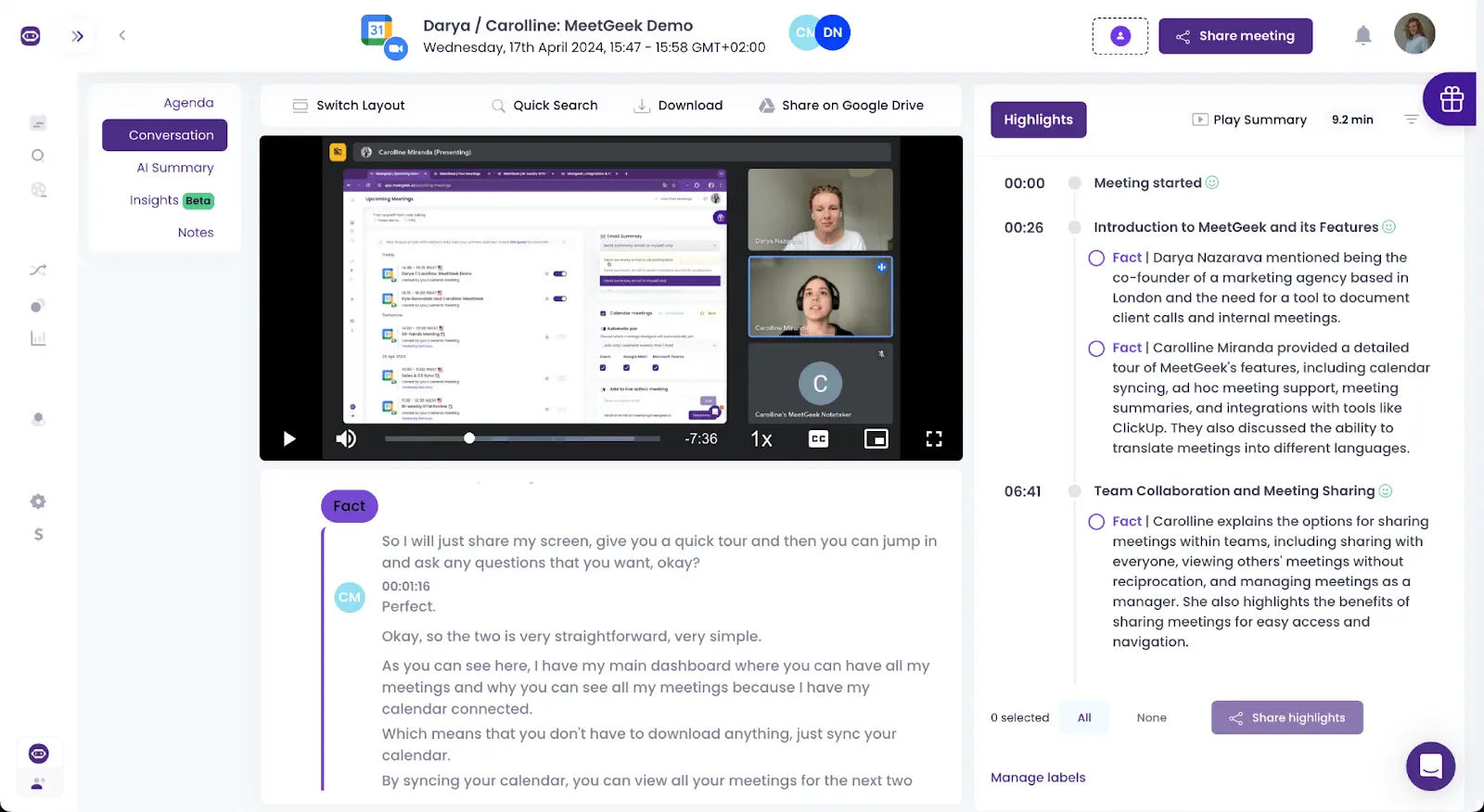
Estas son las principales características de MeetGeek:
- Grabación y transcripción automatizadas: MeetGeek se une, graba y transcribe automáticamente sus reuniones, lo que le ahorra la molestia de tomar notas manualmente.
- Resúmenes de IA: Después de la reunión, MeetGeek ofrece un resumen conciso de la reunión que destaca las discusiones, decisiones y tareas clave. Este resumen se puede compartir fácilmente con los participantes u otras personas que podrían beneficiarse de las ideas de la reunión.
- Detección de elementos de acción: La función de detección de tareas de MeetGeek identifica elementos de acción de sus discusiones, capturando de manera efectiva todos los seguimientos necesarios sin esfuerzo adicional.
- Repositorio de reuniones centralizado: Todas las reuniones se almacenan en un repositorio de reuniones con capacidad de búsqueda en MeetGeek. Puede revisar, descargar o compartir estas grabaciones de forma segura, lo que permite a las partes interesadas acceder a las discusiones cuando lo deseen.
- Flujos de trabajo personalizados: Configurar flujos de trabajo personalizados para actualizar automáticamente sus espacios de trabajo compartidos con los elementos de acción detectados, garantizando que el progreso del proyecto se supervise continuamente y que los desafíos se aborden con prontitud.
- Análisis personalizado de reuniones: Software de inteligencia conversacional MeetGeek evalúa la eficacia de sus reuniones en función de los indicadores clave de rendimiento (KPI) seleccionados para cada tipo de reunión.
A continuación, le indicamos cómo empezar con MeetGeek:
- Paso 1: Regístrese para una cuenta gratuita de MeetGeek con las credenciales de tu cuenta de Microsoft o Google, sin necesidad de detalles de inicio de sesión adicionales.
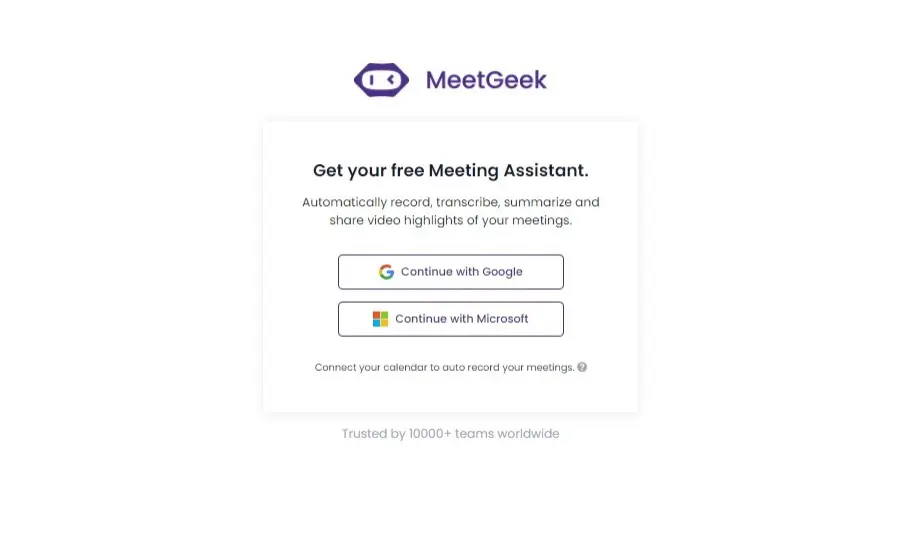
- Paso 2: Sincronice su calendario con MeetGeek para permitir que el asistente virtual busque y se una automáticamente a las reuniones programadas. Para reuniones instantáneas, simplemente usa el Extensión MeetGeek para Chrome para empezar a grabar en vivo ad hoc reuniones.

- Paso 3: Una vez que comience la reunión, MeetGeek se unirá como participante, grabando vídeos, audios y pantallas compartidas sin dejar de cumplir las normas de privacidad y consentimiento.
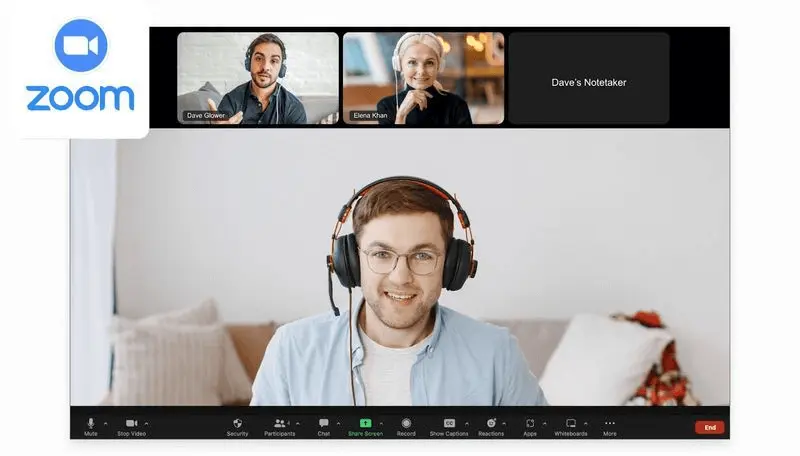
Consejo profesional: MeetGeek puede asistir a las reuniones en su nombre, lo que garantiza que se mantenga informado incluso cuando no pueda asistir usted mismo.
Preguntas frecuentes sobre la programación de una reunión de Zoom en Outlook
1. ¿Puedo programar una reunión de Zoom periódica en Outlook?
Sí, puede programar una reunión periódica de Zoom en Outlook. Al crear una nueva reunión en Outlook, simplemente utilice el «Recurrencia» botón en la barra de herramientas de la reunión para configurar la reunión para que se repita según la frecuencia deseada, como diaria, semanal o mensual.
Después de configurar la periodicidad, proceda a agregar el enlace de la reunión de Zoom, ya sea mediante el complemento de Zoom o pegando manualmente los detalles de la reunión en la invitación.
NOTA: Recuerde comprobar que el enlace de Zoom sea válido para cada instancia recurrente, especialmente si utiliza un único enlace de Zoom para varias sesiones.
2. ¿Por qué no puedo añadir una reunión de Zoom en Outlook?
Si no puede agregar una reunión de Zoom en Outlook, puede deberse a uno de los siguientes motivos:
- El plugin/complemento de Zoom no está instalado: Asegúrese de que el complemento Zoom o el complemento Zoom para Outlook estén correctamente instalados y activados en su Outlook.
- Software desactualizado: Tanto el cliente de escritorio de Outlook como la aplicación de teléfono de Zoom deben actualizarse a las versiones más recientes para garantizar la plena funcionalidad y compatibilidad.
- Permisos de cuenta: Compruebe si la configuración y los permisos de su cuenta de Zoom le permiten programar reuniones.
- Problemas de red: Tenga cuidado con cualquier restricción de red o configuración de firewall que pueda impedir que el complemento funcione correctamente.
3. ¿Cómo configuro una sala de espera para una reunión de Zoom programada en Outlook?
Para configurar una sala de espera para una reunión de Zoom que programe en Outlook, primero tendrá que configurar esta configuración en su cuenta de Zoom:
- Vaya al portal web de Zoom e inicie sesión en su cuenta.
- Ve a Configuración y busca la pestaña «Reunión».
- Activa la opción «Sala de espera».
NOTA: Una vez habilitada esta función, todas las reuniones programadas con su cuenta de Zoom, incluidas las creadas a través de Outlook, incluirán automáticamente una sala de espera.
4. ¿Cómo cancelo una reunión de Zoom programada en Outlook?
Para cancelar una reunión de Zoom programada en Outlook:
- Abre tu calendario de Outlook y busca la reunión que deseas cancelar.
- Abra la invitación a la reunión y seleccione»Cancelar la reunión».
- Si lo desea, puede enviar un mensaje de cancelación a los invitados para informarles de la cancelación.
NOTA: Recuerde cancelar también la reunión en su cuenta de Zoom para liberar su agenda de Zoom.
5. ¿Por qué no funciona mi complemento Zoom Outlook?
Si su complemento de Outlook de Zoom no funciona, tenga en cuenta los siguientes pasos de solución de problemas:
- Compruebe la instalación: Asegúrese de que el complemento esté instalado correctamente. En caso de duda, reinstala el plugin.
- Compatibilidad: Compruebe que su versión de Outlook es compatible con el complemento Zoom. Algunas versiones antiguas o muy nuevas pueden tener problemas de compatibilidad.
- Problemas de inicio de sesión: Asegúrese de haber iniciado sesión en sus cuentas de Zoom y Outlook.
- Restricciones de administración: Si utilizas una cuenta corporativa o educativa, comprueba si alguna restricción administrativa puede estar bloqueando la funcionalidad del plugin.
- Actualizar el software: Como regla general, asegúrese de que tanto su Zoom como Outlook estén actualizados para evitar problemas causados por un software desactualizado.
¡Optimice su experiencia de reuniones de Zoom con MeetGeek!
Dominar la programación de las reuniones de Zoom en Outlook en varios dispositivos puede mejorar significativamente la eficiencia en la gestión de las reuniones virtuales. Con las instrucciones que le proporcionamos, puede programar, gestionar y personalizar fácilmente sus reuniones utilizando las sólidas funciones de ambas plataformas.
Para aumentar aún más la productividad de sus reuniones, considere la posibilidad de explorar MeetGeek integración con Zoom. Nuestra plataforma de automatización de reuniones con IA graba, transcribe y resume automáticamente sus reuniones, lo que le permite centrarse más en la conversación y menos en la toma de notas.
Pruébelo de forma gratuita y descubra cómo puede transformar la dinámica de sus reuniones al hacer que cada sesión de Zoom sea más productiva y centrada, sin importar dónde se encuentre o qué dispositivo utilice.
.avif)




